

On the site
Life and mind: philosophical issues in biology and psychology, mental time travel.
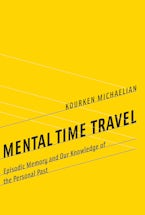
Episodic Memory and Our Knowledge of the Personal Past
by Kourken Michaelian
ISBN: 9780262551151
Pub date: February 6, 2024
- Publisher: The MIT Press
312 pp. , 6 x 9 in , 10 line drawings
ISBN: 9780262034098
Pub date: February 5, 2016
ISBN: 9780262334587
Pub date: February 19, 2016
- 9780262551151
- Published: February 2024
- 9780262034098
- Published: February 2016
- 9780262334587
- MIT Press Bookstore
- Penguin Random House
- Barnes and Noble
- Bookshop.org
- Books a Million
Other Retailers:
- Amazon.co.uk
- Waterstones
- Description
Drawing on current research in psychology, a new philosophical account of remembering as imagining the past.
In this book, Kourken Michaelian builds on research in the psychology of memory to develop an innovative philosophical account of the nature of remembering and memory knowledge. Current philosophical approaches to memory rest on assumptions that are incompatible with the rich body of theory and data coming from psychology. Michaelian argues that abandoning those assumptions will result in a radically new philosophical understanding of memory. His novel, integrated account of episodic memory, memory knowledge, and their evolution makes a significant step in that direction.
Michaelian situates episodic memory as a form of mental time travel and outlines a naturalistic framework for understanding it. Drawing on research in constructive memory, he develops an innovative simulation theory of memory; finding no intrinsic difference between remembering and imagining, he argues that to remember is to imagine the past. He investigates the reliability of simulational memory, focusing on the adaptivity of the constructive processes involved in remembering and the role of metacognitive monitoring; and he outlines an account of the evolution of episodic memory, distinguishing it from the forms of episodic-like memory demonstrated in animals.
Memory research has become increasingly interdisciplinary. Michaelian's account, built systematically on the findings of empirical research, not only draws out the implications of these findings for philosophical theories of remembering but also offers psychologists a framework for making sense of provocative experimental results on mental time travel.
Kourken Michaelian is a Lecturer in the Department of Philosophy at the University of Otago, New Zealand.
Kourken Michaelian's book will be a milestone in the study of memory. This systematic investigation covers an impressive span of philosophical and psychological work on memory, and is both well-informed in cognitive science and nuanced in its conceptual treatment of the topic. Michaelian's treatise provides a framework that will shape the debates on memory and mental time travel in the years to come Jordi Fernández, Department of Philosophy, University of Adelaide, Australia
In Mental Time Travel , Kourken Michaelian calls into question the intuitive assumption that memory is strictly about the past. In so doing, he offers a fresh multidisciplinary perspective into memory's constructive nature. Psychologists, neuroscientists, and philosophers who study the concept of memory should consider this volume essential reading. Karl Szpunar, Assistant Professor of Psychology, University of Illinois at Chicago
To me, what is most exciting about this book is its demonstration that good philosophy and good science are not incompatible, that philosophy can inform science... and that science can inform philosophy. Metapsychology Online Reviews
[T]his work has led me to consider questions that I had never thought about in my four decades of memory research. This is an essential book for anyone interested in memory. PsycCRITIQUES
Michaelian's book is a very valuable contribution to the small, but growing, philosophical literature on what is perhaps the most intriguing of the various phenomena involved in remembering. Notre Dame Philosophical Reviews
...crisp and impressive. The Philosophical Quarterly
Mental Time Travel is a comprehensive look at the metaphysics, epistemology, and evolution of episodic memory that will be of interest to philosophers and psychologists alike. Philosophical Review
Related Books
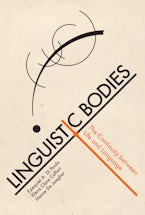

40 Best Time Travel Books To Read Right Now (2024)
This post may contain affiliate links that earn us a commission at no extra cost to you.
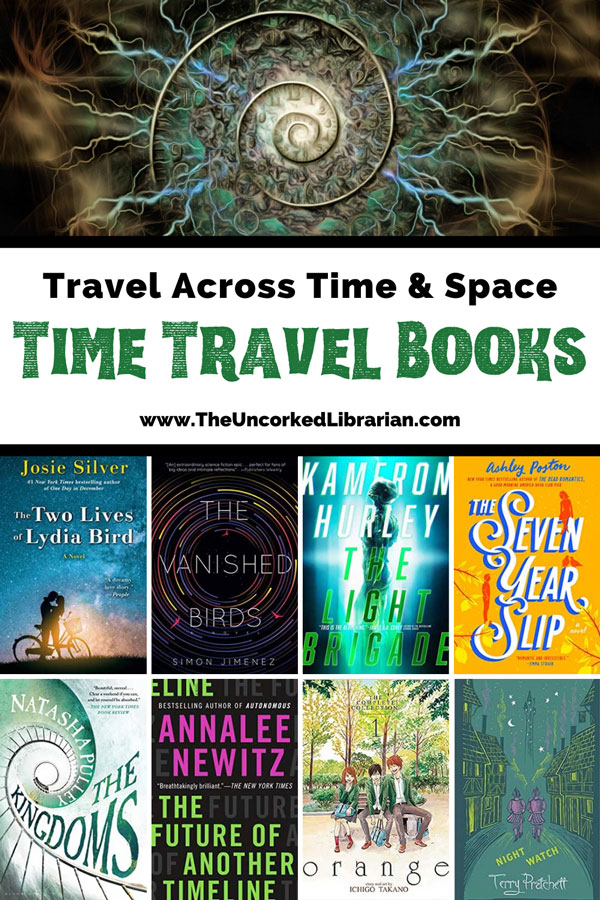
Travel back in time with the best time travel books, including engrossing thrillers, romance, contemporary lit, and mind-bending sci-fi.

Table of Contents
Best Time Travel Books
Books about time travel promise to not only transport you across time periods and space – Doctor Who-style – but also tesser you into new dimensions and around the world. Most readers already know about classics like The Time Traveler’s Wife , A Christmas Carol , and The Time Machine .
For romance time travel, grab In A Holidaze or One Last Stop . For contemporary and new time travel books, Haig’s The Midnight Library and Serle’s In Five Years captivated our hearts and minds.
Recursion re-kindled our love for science fiction, and Ruby Red transported us to 18th-century London. Books like Displacement promise intuitive and raw commentary about generational trauma and racism in graphic novel form.
Below, find the best time travel novels across genres for adults and teens, including history, romance, classics, sci-fi, YA, and thrilling fiction. Get ready to travel in the blink of an eye, and be sure to let us know your favorites in the comments. Let’s get started!
Contemporary & Literary Fiction
If you enjoy contemporary and literary fiction filled with strong main characters, these are some of the best books in the time travel genre. Uncover new releases as well as books on the bestseller lists. Of course, we’ll share a few lesser-known gems too.
In Five Years by Rebecca Serle
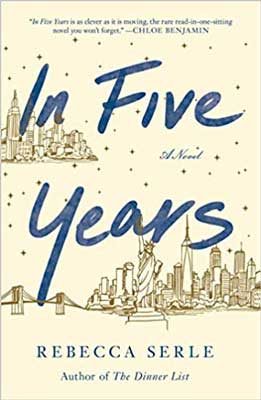
Would your life change if you had one seemingly real dream or premonition? What if some key facts were missing but you had no idea? Can we change the future?
One of the best books about time travel and friendship, don’t skip In Five Years . In fact, we read this New York City-based novel in half a day. Have the tissue box ready.
Dannie nails an important job interview and is hoping to get engaged. Of course, this is all a part of her perfect 5-year plan. Dannie has arranged every minute of her life ever since her brother died in a drunk driving accident.
On the night of Dannie’s “scheduled” engagement, she falls asleep only to have a vision of herself 5 years into the future in the arms of another man. Did she just time travel or could this be a dream? When Dannie arrives back in 2020, her life goes back to normal. …That is until she meets the man from her dream.
We were expecting In Five Years to be a time travel romance story; however, this is a different type of love and one of the best books about strong friendships .
Read In Five Years : Amazon | Goodreads
Before the coffee gets cold by Toshikazu Kawaguchi

Translated by Geoffrey Trousselot | We just love Japanese literature . One of the most debated time travel books among our readers – you’ll either love it or hate it – Before the coffee gets cold takes place at a cafe in Tokyo, Japan.
Along with coffee, this 140-year-old, back-alley cafe lets visitors travel back in time. Four visitors at the cafe are hoping to time travel to see someone for the last (or first) time. The way each patron views the cafe says a lot about them. The details and repetition are everything.
True to the title, visits may only last as long as it takes for the coffee to grow cold. If they don’t finish their coffee in time, there are ghostly consequences.
Before the coffee gets cold asks, who would you want to see one last time, and what issues you would confront?
Along with the many rules of time travel, these visitors are warned that the present will not change. Would you still travel back knowing this? Can something, anything, still change – even within you?
The story has a drop of humor with a beautiful message. We shed a tear or two. Discover even more terrific and thought-provoking Japanese fantasy novels here .
Read Before the coffee gets cold : Amazon | Goodreads
If you are looking for the most inspiring take on time travel in books, Haig’s The Midnight Library is it. This is one of those profound stories that make you think more deeply . TWs for pet death (early on) and suicide ideation.
The Midnight Library by Matt Haig
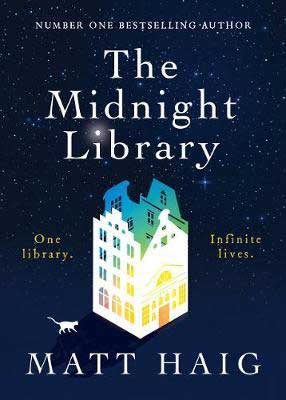
Imagine if you could see your other possible lives and fix your regrets. Would that path be better? Would these changes make you happier?
Set in Bedford, England, and at a library , Nora answers these questions as she intentionally overdoses on pills. Caught in the Midnight Library – a purgatory of sorts – Nora explores books filled with the ways her life could have turned out. She tries on these alternative lives, pursuing different dreams, marrying different people, and realizing that some parts of her root life were not as they seemed on the surface.
Find hope and simplicity in one of the most authentic and heaviest time travel novels on this list. Haig addresses mental health through a new lens that is both beautiful and moving.
With a team full of avid readers and librarians, discover our top selections featuring more books about books .
Read The Midnight Library : Amazon | Goodreads
The Two Lives of Lydia Bird by Josie Silver
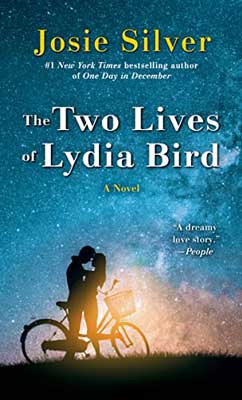
Some of the best time travel books are those with alternate realities, including The Two Lives of Lydia Bird . There are content warnings for prescription pill addiction and more.
Set in England, Lydia and Freddie are planning their marriage when the unthinkable happens. Freddie dies in a car accident on the way to Lydia’s birthday dinner. In a matter of seconds, Lydia’s world falls apart. She isn’t sure how she will survive. When Lydia starts taking magical pink sleeping pills, she enters an alternate universe where Freddie is alive and well.
Caught between her dream world and real life, Lydia must decide if she will give in to her addiction – living in a temporary fantasy world – or give it up completely.
While the repetitive and predictable plot drags a bit – slightly hurting the pacing – the overall story shows emotional growth and the nature of healing after loss. And, as Lydia soon learns via her dreams, no love is perfect. Maybe her future was destined to be different anyway, which is reminiscent of Matt Haig’s The Midnight Library .
Read The Two Lives of Lydia Bird Jose Silver : Amazon | Goodreads
The First Fifteen Lives Of Harry August by Claire North
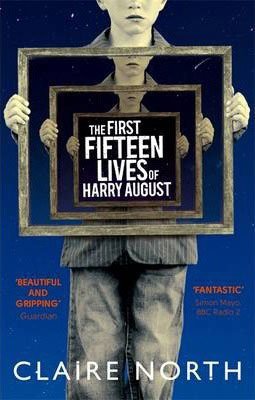
If you are looking for more suspenseful books about time travel and like Groundhog Day , check out The First Fifteen Lives of Harry August. However, this is not just one day on repeat; instead, this is a lifetime.
Harry August is repeatedly reborn into the same life, retaining his memories each time. No matter what Harry does or says, when he lands on his deathbed, he always returns back to his childhood, again and again. On the verge of his eleventh death, though, a girl changes the course of his life. He must use his accumulated wisdom to prevent catastrophe.
Read The First Fifteen Lives Of Harry August : Amazon | Goodreads
An Ocean of Minutes by Thea Lim
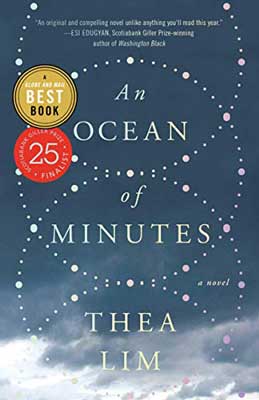
When it comes to time travel books, An Ocean of Minutes is one of the most original takes about time travel’s effects on alternate history.
Polly and Frank are deeply in love in 1981 when a pandemic devastates the planet. By the end of 1981, time travel (invented in this alternate reality in 1993) has been made available.
Because of this invention, individuals can sign on to work for the TimeRaiser corporation in order to escape or save their loved ones in the present. Due to a flaw in the technology, though, they can only transport people for 12 years. This prevents them from stopping the pandemic by just 6 months.
When Frank gets ill, Polly signs up, both agreeing they will meet back up in 1993. Now alone in the future, Polly has to learn to navigate a world she has less than zero preparation for. In this world, she is a time refugee, bonded to TimeRaiser without a physical cent to her name.
Lim uses the time travel mechanic to cleverly explore the subject of immigration, forcing the reader to follow Polly blindly into a world they should know, but don’t. This is what makes An Ocean of Minutes one of the most unique time travel novels on this reading list.
Read An Ocean of Minutes : Amazon | Goodreads
Time Travel In Science Fiction
For fantasy and sci-fi lovers, take a quantum leap into fictional worlds, quantum physics, possible futures, black holes, and endless possibilities. See if you can tell the difference between the real world and new dimensions.
Recursion by Blake Crouch
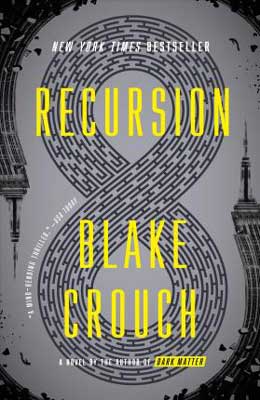
Recursion is one of our all-time favorite time travel books to gift to dads who love sci-fi. Can you tell what we gave our dad for Christmas one year?
In Recursion, no one actually physically time travels – well, sort of. Instead, memories become the time-traveling reality.
Detective Barry Sutton is investigating False Memory Syndrome. Neuroscientist Helena Smith might have the answers he needs. The disease drives people crazy – and to their deaths – by causing them to remember entire lives that aren’t theirs. Or are they!?
All goes to heck when the government gets its hands on this mind-blowing technology. Can Barry and Helena stop this endless loop?
Recursion is also a (2019) Goodreads Best Book for Science Fiction.
Read Recursion : Amazon | Goodreads
This Is How You Lose The War by Max Gladstone and Amal El-Mohtar
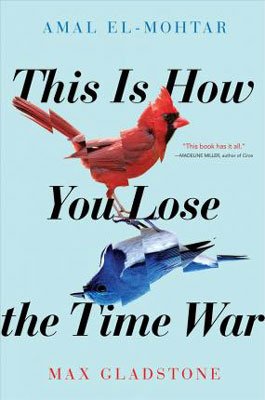
A Goodreads runner-up for one of the best science fiction novels (of 2019) – and one of the shortest time travel novels on this list – This Is How You Lose The Time War follows two warring time-traveling agents falling in love through a letter exchange.
Red and Blue have nothing in common except that they travel across time and space and are alone. Their growing and forbidden love is punishable by death and their agencies might be onto them.
In a somewhat beautiful yet bizarre story, we watch as Red and Blue slowly fall for each other and confess their love. They engage in playful banter and nicknames. Every shade of red and blue reminds them of each other.
The first half of the novel is a bit abstract. You might wonder what the heck you’ve gotten yourself into. However, once you get your feet planted firmly on the ground of the plot, the story picks up and starts making more sense.
We can’t promise you’ll love or even understand This Is How You Lose The Time War – we aren’t sure we do. However, this is truly one of the most unique sci-fi and LGBTQ+ time travel romance books on this reading list – written by two authors. Also, maybe crack out the dictionary…
Explore even more of the best LGBTQ+ fantasy books to read next.
Read This Is How You Lose The War : Amazon | Goodreads
All Our Wrong Todays by Elan Mastai
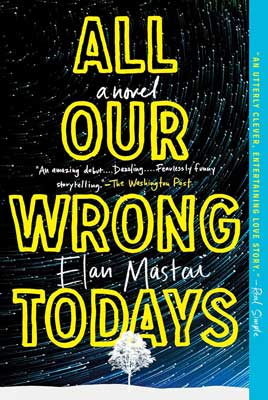
A debut novel, All Our Wrong Todays is both a humorous and entertaining time travel book that speaks to how we become who we are.
In 2016, technology perfected the world for Tom Barren. However, we all know that perfection doesn’t equate to happiness. Barren has lost his girlfriend, and he just happens to own a time machine… Now, Barren has to decide if he wants to keep his new, manipulated future or if he just wants to go back home to his depressing but normal life.
Read All Our Wrong Todays : Amazon | Goodreads
Here And Now And Then by Mike Chen
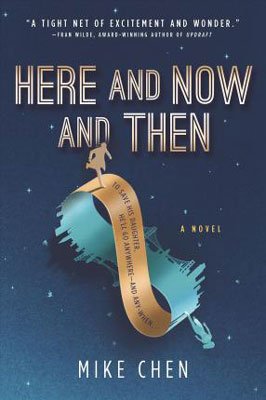
Imagine getting trapped in time and starting over. That’s exactly what happens to IT worker, Kin Stewart, in one of the bestselling science fiction time travel books, Here And Now And Then .
Stewart has two lives since he is a displaced time-traveling agent stuck in San Francisco in the 1990s. He has a family that knows nothing about his past; or, should we say future. When a rescue team arrives to take him back, Stewart has to decide what he is willing to risk for his new family.
Here And Now And Then is a time travel book filled with emotional depth surrounding themes of bonds, identity, and sacrifice. Find even more books set in San Francisco, California (and more!).
Read Here And Now And Then : Amazon | Goodreads
How to Live Safely in a Science Fictional Universe by Charles Yu
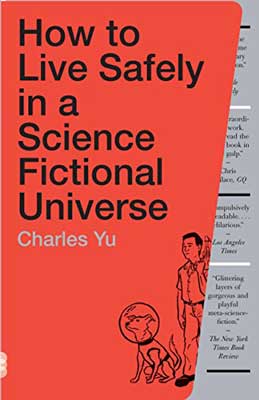
How to Live Safely in a Science Fictional Universe is one of the most unusual books about time travel out there.
Our protagonist Charles Yu lives in a world where time travel exists and is readily available to the average person. And yes, he is named after the author, and yes, it is as meta as it sounds; and yes, this is just the beginning of this speculative fiction time travel book.
Charles Yu’s day job is spent repairing time machines for Time Warner Time. But in his free time, he tries to help the people who use time travel to do so safely and to counsel them if things have gone wrong.
It’s no surprise that Charles’ entire life revolves around time travel since his father invented the technology many years ago. And then he disappeared. In fact, Charles is also trying to find out just what happened to his dad, and where – or when – he’s gone.
How to Live Safely in a Science Fictional Universe won’t be for everyone, but it’s one of the best time travel books if you want delightfully meta, fantastically non-linear, and very very weird.
Read How to Live Safely in a Science Fictional Universe : Amazon | Goodreads
The Vanished Birds by Simon Jimenez
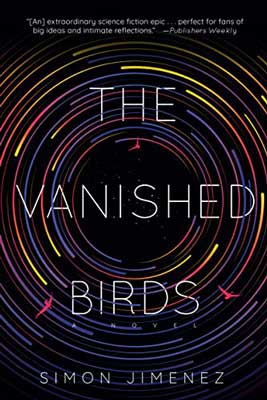
For beautiful, lyrical time travel novels about found family and love, The Vanished Birds is a must-read.
Nia Imani exists outside of time and space. She travels in and out of the world through a pocket of time with her space crew. They emerge to trade or sell goods every eight months. But eight months for them is 15 years for everyone else.
She has lived this way for hundreds of years. Though she has her crew, and there are people she shares connections with sporadically throughout their lives, she is lonely. And although she barely ages, she watches friends and lovers grow old and die.
One such person is Kaeda, who meets Nia for the first time when he is 7. The next time he sees her, he has aged 15 years, while she is only months older. She continues to come every 15 years of his life, always looking the same.
Then one day a mysterious, mute boy falls from the sky into Nia’s life. His name is Ahro, and there’s something extra special about him. Something that could revolutionize space travel forever. And now there might be people after Ahro who won’t love him the way Nia does.
If you love a character-driven book with exquisite prose – and a few time warps – this is one of the best time travel books for you.
Read The Vanished Birds : Amazon | Goodreads
Night Watch by Terry Pratchett
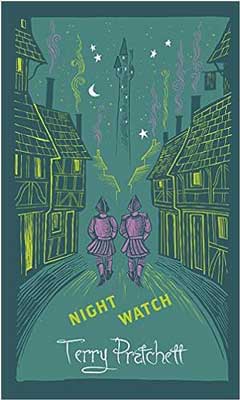
Night Watch is one of the most fun and thrilling books about time travel. It’s also a bit ridiculous and very very British.
Why can’t policing just be simple? All Sam Vimes wanted to do was capture and arrest a dangerous murderer. But thanks to those damned wizards and their experiments, he and the killer have both been accidentally thrown back in time thirty years.
And to top it off, the man who would have become a mentor to young Sam Vimes in the past has been killed in the process! How’s Vimes going to get this all sorted out?
The City Watch he’s spent years improving is just a bunch of semi-competent volunteers at this point. He’s got no money, no clothes, and no friends. But at least he’s making enemies fast. Can he catch the killer, stop history from not repeating itself, and get home to his family? Oh, and the city’s about to dissolve into civil war. Typical.
Night Watch is perfect if you prefer your time travel books to be fantasy-based.
P.S. There may be mild spoilers for previous books in the Discworld series, but this can be read as a standalone. And if you only ever read one Discworld novel, this is one of the best there is – and so far the only one of the Discworld books with time travel!
Read Night Watch : Amazon | Goodreads
The Future of Another Timeline by Annalee Newitz
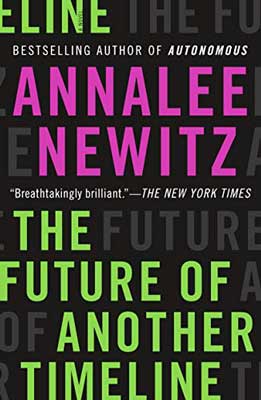
The Future of Another Timeline is one of the few time travel books to explore history through a feminist lens.
In 1992, Beth – a high school senior – and her friends Heather, Lizzy, and Soojin attend a riot grrl concert with Heather’s boyfriend Scott. But afterward, one of Scott’s not-so-funny sexist jokes gets out of hand and Lizzy accidentally kills him. Now they’re on the run, and the bodies just keep piling up.
Meanwhile, in 2022, Tess is part of a group of women and non-binary people working together to change history. They have the use of five time devices which only allow them to travel backward and back to the present day – but never forwards.
Beth and Tess come from two wildly different times (1992, and 2022, respectively). But, while Beth is busy making history, Tess is quite literally trying to change it. However, both of them want the same thing: a better world. When their worlds collide, will they be able to save each other – and the world?
The Future of Another Timeline is a time travel fiction celebration of feminism and queerness with lots of sci-fi and punk rock thrown in. This is one of the best time travel novels for those who enjoy stellar women making history .
Read The Future of Another Timeline : Amazon | Goodreads
The Kingdoms by Natasha Pulley
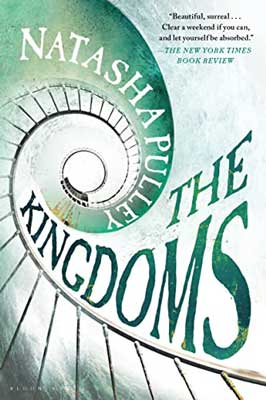
The Kingdoms is wildly imaginative and sure to enchant fans of time travel books, alternative history stories, and tales about parallel universes.
In 1898 Joe Tournier steps off a train and suddenly can’t remember anything that comes before that moment. The world he now finds himself in is as foreign to him as it is to us: an alternate history/reality where the UK lost the Battle of Trafalgar and is now a French colony.
In this world, the British are kept as slaves. Napoleon is a popular name for pets, and tartan is outlawed. Since Joe arrives on a train from Glasgow speaking English and wearing tartan, there is some speculation he might be from The Saints, a terrorist group based in Edinburgh fighting for freedom.
But all Joe remembers is the fading image of a woman and the name Madeline. Although he is identified by his owner and brought “home,” Joe is determined to find this Madeline. And his resolve is only strengthened when he receives a postcard signed ‘– M’ and dated 90 years in the past.
Discover even more books about Scottish culture, history, and everyday life.
Read The Kingdoms : Amazon | Goodreads
The Light Brigade by Kameron Hurley
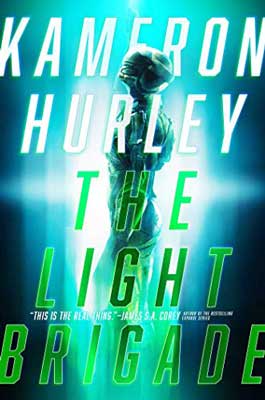
The Light Brigade is one of the best time travel stories for anyone who loves character-driven tales or books about war and conflict.
As war wages on Mars, the military has devised the perfect soldier to fight on the frontlines: being made of light. The Light Brigade, as they’re called back home, is made up of soldiers who have undergone a procedure that breaks them down into atoms capable of traveling at the speed of light. They are the perfect soldiers, but broken people.
The book follows one such soldier, Dietz, an eager new recruit who is experiencing battle out of sync with everyone else. Because of this, she – and we – see a different reality of the war than the one presented by the Corporate Corps. As Dietz becomes more and more unstuck in time, she becomes more and more unsure of her own sanity and the role she is playing in this war.
Read The Light Brigade : Amazon | Goodreads
The Umbrella Academy by Gerard Way
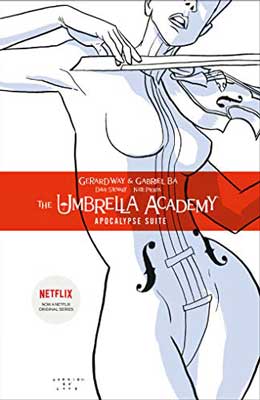
You Look Like Death Volume 1 | Now a popular (and excellent) Netflix TV show, The Umbrella Academy is one of the best time travel books of all time.
One day, forty-seven children are suddenly and inexplicably born to women who were not previously pregnant. Eccentric millionaire Reginald Hargreeves goes around the world buying as many of the surviving children as he possibly can. He is able to get seven.
These children, it turns out, all have superpowers (except, it seems, for the unremarkable Number Seven aka Vanya). They become the crime-fighting group: The Umbrella Academy.
Fast forward several years, and Number Five, whose special power is that he can travel in time a few seconds or minutes per go, has mysteriously appeared after Hargreeves dies. And now he brings warning of an apocalypse – one which he insists none of his siblings will survive.
The Umbrella Academy series currently has three volumes, all packed with tales of time travel, parallel worlds, family drama, and lots of epic battles. We’ve absolutely loved this time travel book series so far; we can’t wait to see what Gerard Way does with future installments.
Discover even more great books with music, musicians, and bands.
Read The Umbrella Academy : Amazon | Goodreads
Historical Fiction
Travel back in time to witness wars and history. See what happens if you try to rewrite the future. Many of these historical fiction books with time travel promise to teach you more.
The 7 1/2 Deaths of Evelyn Hardcastle by Stuart Turton
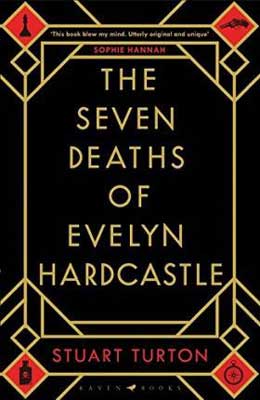
We have a plethora of Agatha Christie fans amongst our Uncorked Readers , and Turton’s The 7 1/2 Deaths of Evenlyn Hardcastle is inspired by Christie.
Similar to Levithan’s Every Day , each day, Aiden wakes up in a different body from the guests of the Blackheath Manor. Trapped in a time loop, Aiden must solve Evelyn Hardcastle’s murder to escape. In the process, he navigates the tangled web of secrets, lies, and interconnected lives of the guests. Can he identify the killer and break the cycle?
The 7 1/2 Deaths of Evelyn Hardcastle is an award-winning historical thriller and one of the best time travel novels if you enjoy Downton Abbey and Groundhog’s Day . Discover even more great books set at hotels, mansions, and more.
Read The 7 1/2 Deaths of Evelyn Hardcastle : Amazon | Goodreads
Outlander by Diana Gabaldon
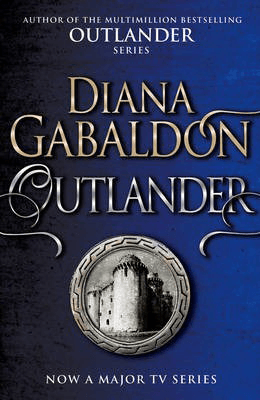
Travel back in time to Scotland in one of the most well-known time travel book series (and now TV series) of all time. Outlander is a part of pop culture. A New York Times bestseller and one of the top 10 most loved books according to The Great America Read, get ready to enter Scotland in 1743.
Claire Randall, a former British combat nurse, walks through an ancient circle of stones and is transported into a world of love, death, and war. This is a place of political intrigue, clan conflicts, and romantic entanglements. Claire must navigate the unfamiliar landscape while grappling with her feelings for the dashing Jamie Fraser.
Encounter even more cult-classic books from the ’90s like A Game Of Thrones , which is perfect for fantasy map lovers .
Read Outlander : Amazon | Goodreads
11/22/63: A Novel by Stephen King
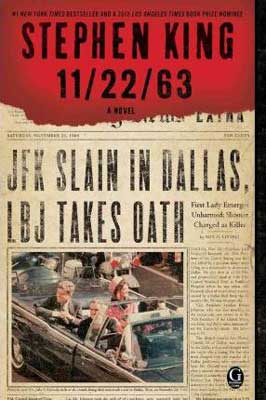
Written by bestselling author, Stephen King, 11/22/63 is one of the best award-winning time travel books for historical fiction lovers. Set in 1963 when President Kennedy is shot, 11/22/63 begs the question: what if you could go back in time and change history?
Enter Jake Epping in Lisbon Falls, Maine. Epping asks his students to write about a time that altered the course of their lives. Inspired by one of those haunting essays, Epping enlists to prevent Kennedy’s assassination. How is this time travel possible? With the discovery of a time portal in a local diner’s storeroom…
11/22/63 is one of the most thrilling and realistic books about time travel, according to both critics and readers.
Read 11/22/63 : Amazon | Goodreads
Kindred by Octavia E. Butler
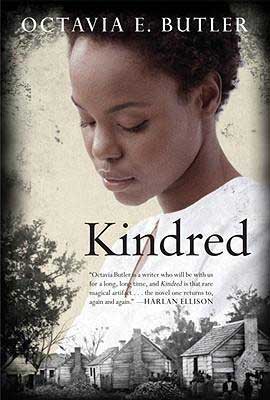
If you are looking for historical fiction novels about time travel that address slavery and racism, be sure to check out Butler’s Kindred. This is also one of the best books published in the 1970s .
One minute Dana is celebrating her birthday in modern-day California. The next, she finds herself in the Antebellum South on a Pre-Civil War Maryland plantation. Dana is expected to save the plantation owner’s son from drowning. Each time Dana finds herself back in this time period as well as the slave quarters, her stays grow longer and longer as well as more dangerous.
Examine the haunting legacy and trauma of slavery across time. For younger readers, there is also a graphic novel adaptation . Discover more books that will transport you to the South .
Read Kindred : Amazon | Goodreads
What The Wind Knows by Amy Harmon
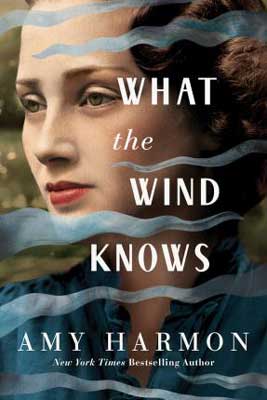
A bestseller and Goodreads top choice book, if you devour historical Irish fiction, What The Wind Knows will transport you to Ireland in the 1920s.
Anne Gallagher heads to Ireland to spread her grandfather’s ashes. Devastated, her grief pulls her into another time. Ireland is on the verge of entering a war, and Anne embraces a case of mistaken identity. She finds herself pulled into Ireland’s fight for Independence at the risk of losing her future life. She also falls for another main character and doctor, Thomas Smith.
What The Wind Knows is one of the best time travel novels that both romance and fantasy readers can appreciate. Witness connections that transcend time.
Read What The Wind Knows : Amazon | Goodreads
The Shining Girls by Lauren Beukes
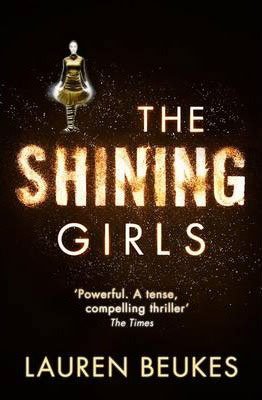
Known for being one of the best time travel books for thriller lovers, The Shining Girls also has the reputation as the spookiest novel on this reading list.
Kirby Mazrachi is the last shining girl – a girl with a future and so much potential. Harper Curtis is a murderer from the past meant to kill Mazrachi. However, Kirby is not about to easily go out without a fight, leading her on one violent quantum leap through multiple decades.
As Kirby races against time to track down a serial killer and unravel the mysteries of the House, encounter themes of resilience, fate, and the shining spirit that can transcend even the darkest forces.
Read The Shining Girls : Amazon | Goodreads
Time Travel Romance Books
We love a good time-travel romance novel, but we also understand how hard it can be to hold onto love when time is so unstable. From queer love stories set on trains to holiday celebrations, fall in love across time with these books.
One Last Stop by Casey McQuiston
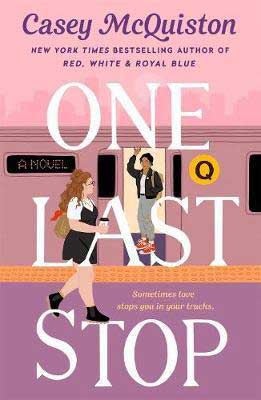
From bestselling author, Casey McQuiston of Red, White, & Royal Blue – one of our favorite LGBTQ+ books for new adults – don’t miss the most-talked-about book (from 2021), One Last Stop.
Twenty-three-year-old August is quite the cynic and living in New York City. Up until now, August has jumped schools and towns as often as you change a pair of socks. August has also never been in a serious relationship and wants to find “her person.” August’s life suddenly changes, though, when she meets a beautiful and mysterious woman on the train.
Jane looks a little…out of date… and for good reason; she’s from the 1970s and trapped in the train’s energy. August wants nothing more than to help Jane leave the train, but does that mean leaving her too?
A feel-good, older coming-of-age story, laugh out loud and be utterly dazzled as you follow love across time and space. You’ll cozy (and drink) up in the parties and community surrounding August. One Last Stop is one of the all-time best LGBTQ+ time travel books – and perfect if you enjoy books that take place on trains .
Read One Last Stop : Amazon | Goodreads
The Time Traveler’s Wife by Audrey Niffenegger
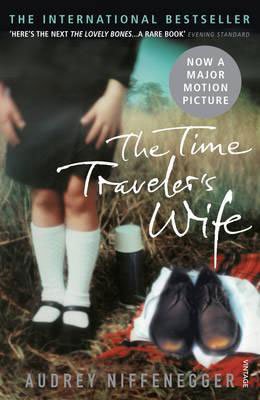
The Time Traveler’s Wife is one the top time travel romance novels – and not just because the story features a librarian . We are so biased.
Henry and Clare have loved each other pretty much forever. Unfortunately, Henry has Chrono-Displacement Disorder, sporadically misplacing him in time. Of course, this time-traveling dilemma makes Clare’s and Henry’s marriage and future together pretty darn interesting.
Grab some Kleenex as they attempt to live normal lives and survive impending devastation. The Time Traveler’s Wife has also been made into a romantic movie classic . Watch even more fantasy movies with romance .
Read The Time Traveler’s Wife : Amazon | Goodreads
In A Holidaze by Christina Lauren
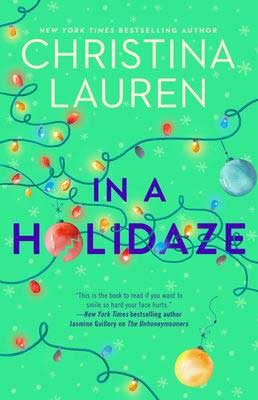
If you are looking for a sweet and sexy holiday rom-com set in Utah, grab In A Holidaze by Christina Lauren.
Mae leaves her family and friend’s Christmas vacation home after drunkenly making out with an old childhood friend. Blame the spiked eggnog. Unfortunately, Mae’s secretly in love with her best friend’s brother, Andrew. On the ride to the airport, Mae wishes for happiness just as a truck hits her parent’s car.
Mae lands in a time-travel loop where her dreams start coming true. Is it too good to last? What happens when she isn’t happy once again? Is she trapped?
For holiday books about time travel, this one is sure to put you in the Christmas spirit if you enjoy movies like Holidates or Groundhog’s Day . It’s light with a happy ending – typical of this author duo. We also recommend In A Holidaze if you are looking for Christmas family gathering books – a big request we see here at TUL.
P.S. Did you know that Christina Lauren is a pen name for a writing duo, Christina Hobbs and Lauren Billings? Christina Lauren also wrote The Unhoneymooners , which was also hilariously enjoyable and set on an island .
Read In A Holidaze : Amazon | Goodreads
A Knight In Shining Armor by Jude Deveraux

For cozy time travel romance books and a feminist tale set abroad, try A Knight In Shining Armor .
Dougless Montgomery is weeping on top of a tombstone when Nicholas Stafford, Earl of Thornwyck, appears. Although this armor-clad hunk allegedly died in 1564, he stands before her about to embark on a journey to clear his name. Convicted of treason, Montgomery vows to help her soon-to-be lover find his accuser and set the record straight.
Read A Knight In Shining Armor : Amazon | Goodreads
The Night Mark by Tiffany Reisz
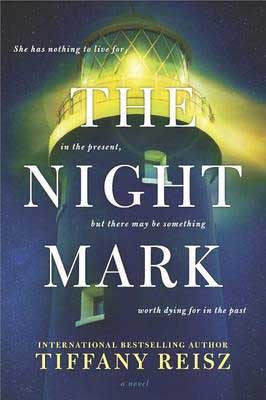
Set in South Carolina, if you love lighthouses and beach vibes, you’ll find something enjoyable in the time travel romance, The Night Mark .
After Faye’s husband dies, she cannot move on and recover. Accepting a photographer job in SC, Faye becomes obsessed with the local lighthouse’s myth, The Lady of the Light.
Back in 1921, the lighthouse keeper’s daughter mysteriously drowned. Faye is drawn into a love story that isn’t hers and becomes entangled in a passionate and forbidden love affair.
Read The Night Mark : Amazon | Goodreads
The Seven Year Slip by Ashley Poston
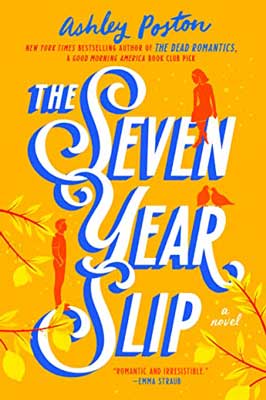
Anyone who likes their time travel books to have a magical love story should pick up The Seven Year Slip for their next read. It’s one of our favorite magical realism novels .
When Clementine’s aunt dies, she inherits her fancy New York apartment on the Upper East Side. Although Clementine would really rather have her aunt back and can’t imagine living in her home, she eventually forces herself to move in and inhabit her aunt’s space.
And not long after, she wakes up to discover a strange man in her living room… except it’s not her living room, it’s her aunt’s… from seven years ago. Clementine’s aunt always said her apartment held a touch of magic; sometimes it created time slips that brought two people together when they were at a crossroads.
But what happens when you start to fall for someone stuck seven years in the past? Clementine knows there’s no future together, but she also can’t let go of this link to her aunt.
Like her previous speculative fiction romance, The Dead Romantics , Ashely Poston’s unique time travel tale is full of heartache and grief. However, it will also make you swoon. Basically, this one is a must if you are a fan of time travel romance books.
Read The Seven Year Slip : Amazon | Goodreads
Classic Books
No time travel reading list would be complete without the classics. Below, uncover just a few great time travel novels that started it all.
The End of Eternity by Issac Asimov
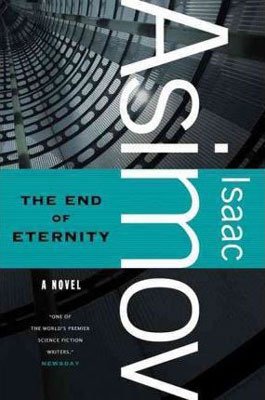
The End of Eternity is said to be one of Asimov’s science fiction masterpieces. This is also one of the most spellbinding books about time travel – although some criticize the story for its loopholes.
Harlan is a member of the elite future known as an Eternal. He lives and works in Eternity, which like any good time travel novel, is located separately from time and space.
Harlan makes small changes in the timeline in order to better history. Of course, altering the course of the world is dangerous and comes with repercussions, especially when Harlan falls in love.
Read The End of Eternity : Amazon | Goodreads
A Christmas Carol by Charles Dickens
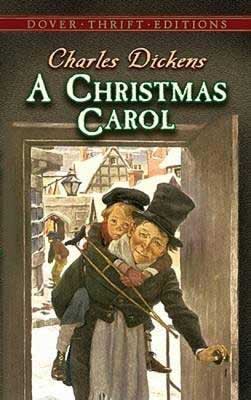
It goes without saying that Charles Dickens’s A Christmas Carol is one of the most famous and best time travel books for classic lovers – and a literary canon-worthy Christmas novel.
Ebenezer Scrooge is a greedy, lonely, and cruel man who truly has no Christmas spirit. Haunted by the ghosts of the past, present, and future, Scrooge must find the ultimate redemption before it’s too late. Does he have a heart?
Find even more classic and contemporary ghost books , including a few unique takes on ghosts.
Read A Christmas Carol : Amazon | Goodreads
Slaughterhouse-Five by Kurt Vonnegut
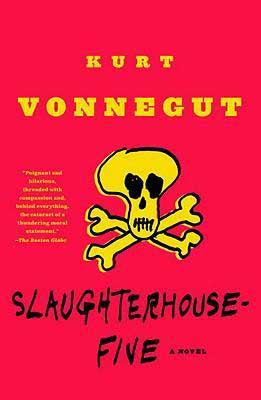
Slaughterhouse-Five is a somewhat bizarre time travel book about finding meaning in our sometimes fractured and broken lives. It’s also one of the most popular books published in the ’60s .
Similar to The Time Traveler’s Wife, Billy Pilgrim is “unstuck” in time in Kurt Vonnegut’s Slaughterhouse-Five. Drafted into World War II, Pilgrim serves as a Chaplain’s assistant until he is captured by the Germans. He survives the bombing at Dresden and ultimately becomes a married optometrist. Things get a little wild…
Suffering from PTSD, Billy claims that he is kidnapped by aliens in a different dimension. Like most time travel novels, the story is out of order and Billy travels to different parts of his life.
Aliens come in all shapes and sizes; have more alien encounters with this reading list .
Read Slaughterhouse-Five : Amazon | Goodreads
A Connecticut Yankee In King Arthur’s Court by Mark Twain
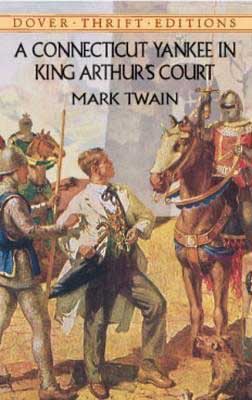
First published in 1889, A Connecticut Yankee in King Arthur’s Court is one of the most popular classic and satirical time travel novels that’s set close to our childhood home. Having grown up in CT close to the old Colt factory, this story makes us smile.
Hank Morgan supervises the gun factory and is knocked unconscious. Upon waking, he finds himself in Britain about to be executed by the Knights of King Arthur’s Round Table in Camelot.
Morgan uses his future knowledge to his advantage, making him a powerful and revered wizard, which unfortunately doesn’t quite save him as he hopes. Not to mention that Morgan tries to introduce modern-day conveniences and luxuries to a time period that isn’t quite ready for them.
Read A Connecticut Yankee In King Arthur’s Court : Amazon | Goodreads
The Time Machine by H.G. Wells
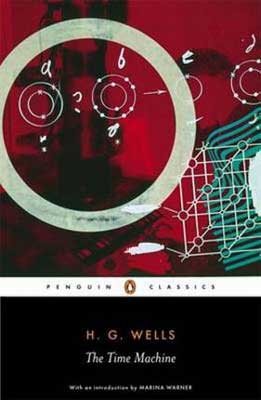
The Time Machine is one of the best frontrunner time travel books of all time. Published in 1895, the Time Traveler recalls his exhausting time travel adventures to incredulous believers. He even disappears in front of them.
Blended with fantasy and science fiction over the course of 800,000 years, the Time Traveler battles “bad guys.” He also loses his time machine, debatably falls in love, and meets the underground dwelling Morlocks.
Read The Time Machine : Amazon | Goodreads
Young Adults Books
For young adults and teens – plus adults who appreciate YA – read the best middle-grade and high school time travel books. We’ve included more time travel graphic novels and manga here too.
Displacement by Kiku Hughes
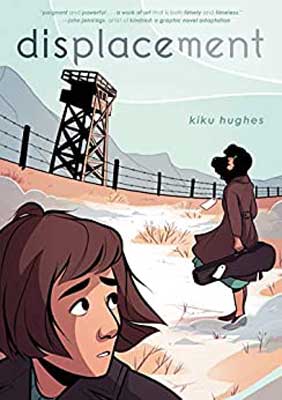
For historical YA graphic novels , Displacement is one of the must-read books about time travel that will teach young readers about generational trauma, racism, politics, and war.
Follow Kiku, who is displaced in time, back to the period of U.S. Japanese incarceration [internment] camps – essentially glorified prisons – during WW2. Kiku begins learning more about her deceased grandmother’s history, which mirrors the horrid actions under former President Donald Trump. How can Kiku help stop the past from repeating itself, and more so, how can we?
In a simplistic but powerful style of storytelling, Hughes’s emotional YA WW2 book is accessible to young readers. Displacement is also one of the shorter and quicker books with time travel on this list. Find even more LGBT+ graphic novels to read – one of our favorite genres.
Read Displacement : Amazon | Goodreads
The Girl From Everywhere by Heidi Heilig
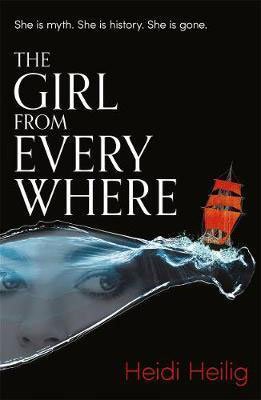
Changing the past can be pretty tempting. We’ve even seen that The Flash cannot resist. However, altering the course of history can be dangerous…
The first of two YA time travel books, Nix is the daughter of a time traveler. Her dad can sail anywhere on his ship, The Temptation. Her dad has his own temptation, though: to travel back to Honolulu in 1868, the year before her mom dies in childbirth. Nix’s father threatens to possibly erase her life and destroy a relationship with her only friend.
Discover even more great books about maps. Or, travel via armchair with these ship books.
Read The Girl From Everywhere : Amazon | Goodreads
Ruby Red by Kerstin Gier
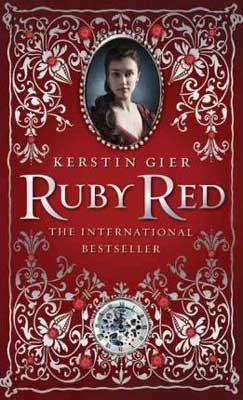
Translated by Anthea Bell | If you are looking for time travel in books and enjoy YA historical fiction, try Ruby Red , which is the first in the Ruby Red Trilogy.
Gwyneth Shepherd quickly learns that she can easily time travel, unlike her cousin who has been preparing her entire life for the feat. Gwyneth wants to know why such a secret was kept from her. There are so many lies. Gwyneth time travels with the handsome Gideon back and forth between modern-day and 18th-century London to uncover secrets from the past.
Back in our MLIS and library days, Ruby Red was one of our favorite YA time travel books to recommend since so few knew about the series. Just a small warning that this enemies-to-lovers trope is a tad sexist, though. Find books like Ruby Red on our books with red (and more colors) in the title reading list .
Read Ruby Red : Amazon | Goodreads
Miss Peregrine’s Home For Peculiar Children by Ransom Riggs
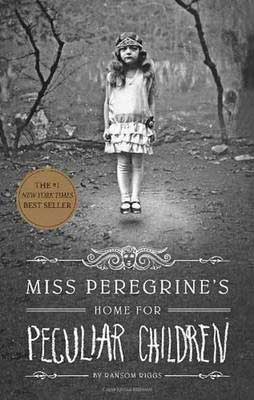
A little creepier for young adult time travel novels, Miss Peregrine’s Home for Peculiar Children is all about time loops. We’ve only read the first in this eerie series that mixes manipulated vintage photography with a suspenseful and chilling story.
Jacob discovers a decaying orphanage on a mysterious island off the coast of Wales. Known as Miss Peregrine’s Home for Peculiar Children, the building isn’t exactly abandoned… Jacob runs into peculiar children who might be more than just ghosts.
If you are looking for Kurt Vonnegut-esque time travel books for teenagers, Miss Peregrine’s Home for Peculiar Children is for you. Find even more great adult and YA haunted house books to add to your reading list .
Read Miss Peregrine’s Home For Peculiar Children : Amazon | Goodreads
A Wrinkle In Time by Madeleine L’Engle
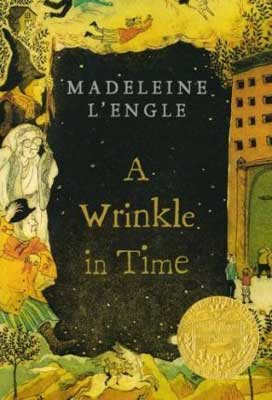
One of the most well-known books about time travel for families – made even more popular by Oprah and Mindy Kaling, A Wrinkle In Time , is the first book in The Time Quintet .
Although a time travel book series for elementary and middle-grade students – and also a 1963 Newbery Medal winner – adults will love the lessons and whimsical sci-fi quality of A Wrinkle In Time.
Meg Murray and her brother, Charles Wallace, go on an adventure in time to find and rescue their father. Their dad disappeared while working for the government on a mysterious tesseract project.
Watch this thrilling time travel adventure mixed with a coming-of-age story and a little girl power, too.
Read A Wrinkle in Time : Amazon | Goodreads
Orange by Ichigo Takano
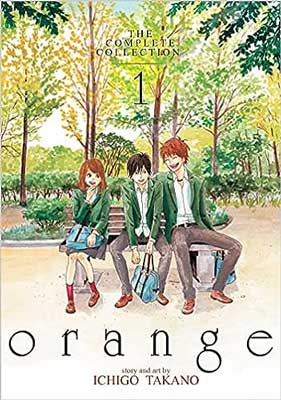
Translated by Lasse Christian Christiansen and Amber Tamosaitis | This YA sci-fi romance manga is one of the most endearing time travel books you’ll ever read.
On the first day of 11th grade, Naho oversleeps for the first time ever. She also receives a letter that claims to be sent from herself 10 years in the future. The letter tells her both of the two big things that will happen to her that day as proof of sender: she will be late, and there will be a new kid in class named Naruse Kakeru from Tokyo who will sit next to her.
Naho is unsure if she trusts the letter, or whether or not she should heed its warnings – especially since it talks about past regrets and trying to undo them.
Orange is an adorable, but heartbreaking time travel manga that teaches us the meaning of friendship, love, regret, and so much more. If you’re looking for the best books about time travel for teens, Orange is the perfect option (and adults will love it too).
Read Orange : Amazon | Goodreads
If you devour the time travel genre, don’t miss these great movies…
If you enjoy books that take you back in time, you might also appreciate these top movies with time loops . Would you be able to fix past mistakes, fall in love, and you know, maybe not die this time? Find out if these protagonists succeed.
Travel Back In Time With These Reading Lists:
- Best ’90s Books
- Iconic ’80s Books
- Best WWII Historical Fiction

Christine Frascarelli
Christine (she/her) is the owner, lead editor, and tipsy book sommelier of The Uncorked Librarian LLC, an online literary publication showcasing books and movies to inspire travel and home to the famed Uncorked Reading Challenge.
With a BA in English & History from Smith College, an MLIS from USF-Tampa, and a U.S. Fulbright Fellowship in Christine's back pocket, there isn't a bookstore, library, or winery that can hide from her. Christine loves brewery yoga, adopting all of the kitties, and a glass of oaked Chardonnay. Charcuterie is her favorite food group.

Dagney McKinney
Dagney (pronouns: any) is a neurodivergent writer and book nerd who is drawn to all things weird and macabre. She also loves anything to do with fast cars, unhinged anti-heroes, and salt. When she isn’t working or reading, you’re likely to find her eating Indian food, playing board games, or hiding out somewhere dark and quiet, stuck down an internet rabbit hole. The easiest way to win her over is through cats and camels.
45 Comments
Hi, nice list but just FYI you have one of the novels named incorrectly: it should be All Our Wrong Todays, not All Our Wrongs Today.
Thanks for letting us know! Every year, this list grows, and sometimes we miss a few mistakes.
The Things Are Bad Series by Paul L Giles is the funniest, most insightful time travel books I’ve ever read. It has everything!
Thanks so much for the review and rec!
Dream Daughter by Diane Chamberlain is an engrossing time travel book that I enjoyed immensely.
Our readers and contributors are big Diane Chamberlain fans. Thanks!
A huge time travel fan. A great list. Another time travel book recommendation: Oona Out of Order by Margarita Montemore. Wonderful story.
Thank you so much for the kind words and recommendation! We’ll have to check it out.
Great list, thanks. I also love seeing all the recommendations in the comments. I would add the Chronos Files series to your list. And, of course, the film ABOUT TIME, which is fantastic!
Thanks so much for the recommendations. We appreciate it!
Leave a Reply Cancel reply
Your email address will not be published. Required fields are marked *

Mental Time Travel : Episodic Memory and Our Knowledge of the Personal Past
Kourken Michaelian is a Lecturer in the Department of Philosophy at the University of Otago, New Zealand.
Drawing on current research in psychology, a new philosophical account of remembering as imagining the past.
In this book, Kourken Michaelian builds on research in the psychology of memory to develop an innovative philosophical account of the nature of remembering and memory knowledge. Current philosophical approaches to memory rest on assumptions that are incompatible with the rich body of theory and data coming from psychology. Michaelian argues that abandoning those assumptions will result in a radically new philosophical understanding of memory. His novel, integrated account of episodic memory, memory knowledge, and their evolution makes a significant step in that direction.
Michaelian situates episodic memory as a form of mental time travel and outlines a naturalistic framework for understanding it. Drawing on research in constructive memory, he develops an innovative simulation theory of memory; finding no intrinsic difference between remembering and imagining, he argues that to remember is to imagine the past. He investigates the reliability of simulational memory, focusing on the adaptivity of the constructive processes involved in remembering and the role of metacognitive monitoring; and he outlines an account of the evolution of episodic memory, distinguishing it from the forms of episodic-like memory demonstrated in animals.
Memory research has become increasingly interdisciplinary. Michaelian's account, built systematically on the findings of empirical research, not only draws out the implications of these findings for philosophical theories of remembering but also offers psychologists a framework for making sense of provocative experimental results on mental time travel.
- Permissions
- Cite Icon Cite
Mental Time Travel : Episodic Memory and Our Knowledge of the Personal Past By: Kourken Michaelian https://doi.org/10.7551/mitpress/10591.001.0001 ISBN (electronic): 9780262334570 Publisher: The MIT Press Published: 2016
Download citation file:
- Ris (Zotero)
- Reference Manager
Table of Contents
- [ Front Matter ] Doi: https://doi.org/10.7551/mitpress/10591.003.0022 Open the PDF Link PDF for [ Front Matter ] in another window
- Preface Doi: https://doi.org/10.7551/mitpress/10591.003.0001 Open the PDF Link PDF for Preface in another window
- Acknowledgments Doi: https://doi.org/10.7551/mitpress/10591.003.0002 Open the PDF Link PDF for Acknowledgments in another window
- 1: Three Questions about Memory Doi: https://doi.org/10.7551/mitpress/10591.003.0004 Open the PDF Link PDF for 1: Three Questions about Memory in another window
- 2: Situating Episodic Memory Doi: https://doi.org/10.7551/mitpress/10591.003.0005 Open the PDF Link PDF for 2: Situating Episodic Memory in another window
- 3: Memory Knowledge Doi: https://doi.org/10.7551/mitpress/10591.003.0006 Open the PDF Link PDF for 3: Memory Knowledge in another window
- [ Opening ] Doi: https://doi.org/10.7551/mitpress/10591.003.0023 Open the PDF Link PDF for [ Opening ] in another window
- 4: The Commonsense Conception Doi: https://doi.org/10.7551/mitpress/10591.003.0008 Open the PDF Link PDF for 4: The Commonsense Conception in another window
- 5: The Causal Theory Doi: https://doi.org/10.7551/mitpress/10591.003.0009 Open the PDF Link PDF for 5: The Causal Theory in another window
- 6: The Simulation Theory Doi: https://doi.org/10.7551/mitpress/10591.003.0010 Open the PDF Link PDF for 6: The Simulation Theory in another window
- [ Opening ] Doi: https://doi.org/10.7551/mitpress/10591.003.0024 Open the PDF Link PDF for [ Opening ] in another window
- 7: The Information Effect Doi: https://doi.org/10.7551/mitpress/10591.003.0012 Open the PDF Link PDF for 7: The Information Effect in another window
- 8: Metamemory and the Source Problem Doi: https://doi.org/10.7551/mitpress/10591.003.0013 Open the PDF Link PDF for 8: Metamemory and the Source Problem in another window
- 9: Metamemory and the Process Problem Doi: https://doi.org/10.7551/mitpress/10591.003.0014 Open the PDF Link PDF for 9: Metamemory and the Process Problem in another window
- [ Opening ] Doi: https://doi.org/10.7551/mitpress/10591.003.0025 Open the PDF Link PDF for [ Opening ] in another window
- 10: The Puzzle of Conscious Episodic Memory Doi: https://doi.org/10.7551/mitpress/10591.003.0016 Open the PDF Link PDF for 10: The Puzzle of Conscious Episodic Memory in another window
- 11: Consciousness and Memory Knowledge Doi: https://doi.org/10.7551/mitpress/10591.003.0017 Open the PDF Link PDF for 11: Consciousness and Memory Knowledge in another window
- 12: Conclusion Doi: https://doi.org/10.7551/mitpress/10591.003.0018 Open the PDF Link PDF for 12: Conclusion in another window
- Notes Doi: https://doi.org/10.7551/mitpress/10591.003.0019 Open the PDF Link PDF for Notes in another window
- References Doi: https://doi.org/10.7551/mitpress/10591.003.0020 Open the PDF Link PDF for References in another window
- Index Doi: https://doi.org/10.7551/mitpress/10591.003.0021 Open the PDF Link PDF for Index in another window
- Open Access
A product of The MIT Press
Mit press direct.
- About MIT Press Direct
Information
- Accessibility
- For Authors
- For Customers
- For Librarians
- Direct to Open
- Media Inquiries
- Rights and Permissions
- For Advertisers
- About the MIT Press
- The MIT Press Reader
- MIT Press Blog
- Seasonal Catalogs
- MIT Press Home
- Give to the MIT Press
- Direct Service Desk
- Terms of Use
- Privacy Statement
- Crossref Member
- COUNTER Member
- The MIT Press colophon is registered in the U.S. Patent and Trademark Office
This Feature Is Available To Subscribers Only
Sign In or Create an Account
Mental time travel is a great decision-making tool — this is how to use it
Share this idea.
- Click to share on Facebook (Opens in new window)
- Click to share on Twitter (Opens in new window)
- Click to share on LinkedIn (Opens in new window)
- Click to share on Reddit (Opens in new window)
- Click to share on Pocket (Opens in new window)
- Click to share on WhatsApp (Opens in new window)

When the future seems largely unpredictable, is there anything you can do to prepare for it?
“Yes!” says futurist and game designer Jane McGonigal . All you need to do is to tap into your imagination and envision all your potential futures — using what she calls “futures thinking.”
“Futures thinking isn’t a superpower, and you don’t have to fix everything or save everyone,” McGonigal writes in her new book called Imaginable . “But futures thinking is an incredibly useful, practical tool to prepare your mind to adapt faster to new challenges, build hope and resilience, reduce anxiety and depression, and inspire you to take actions today that set yourself up for future happiness and success.”
Her book draws on the latest research in psychology and neuroscience to show you how to train your mind to think the unthinkable. In this excerpt, you’ll get a taste of how you can start thinking like a futurist — and create a better future for yourself.
For the next 30 seconds, I want you to imagine yourself waking up tomorrow morning. Try to picture it in your mind or describe it to yourself as clearly as possible.
These questions may help make your imagined scene clearer. What room or space are you in? What wakes you up — an alarm, the sunlight, someone nudging you or calling you? Is it light out or still dark? Is there anyone with you? What are you wearing? What kind of mood are you in? And what’s the very first thing you do now that you’re awake?
Keep imagining your tomorrow morning until you have a clear answer to all of these questions.
This quick mental time trip you just took is an example of a highly imaginable future — it was likely quite easy for you to envision, with plenty of vivid details.
Now let’s try something more challenging. For the next 30 seconds, I want you to imagine yourself waking up one year from today.
Again, try to envision this as clearly as possible. Feel free to change as many or as few details as you want from the first scene you imagined. Are you somewhere different? Are you physically changed? What’s your mood? Do you have a different morning habit? What might that new habit be?
Keep imagining your morning one year from now until you have answers to all of these questions — even the harder ones. Notice how easily and automatically ideas came to you, or how hard you had to work to come up with details.
If you’re having difficulty imagining life 10 years from now, write down a description of what you imagine. It can be easier to think about the future with words rather than with mental images.
Now let’s try one more act of imagination. This time, I want you to imagine yourself waking up 10 years from today.
Take as long as you need to come up with a vivid and plausible image — of yourself, of the space that you’re in, and who might be with you. Where are you? What’s around you? What do you see, hear, smell, and feel? What’s the first thing on your mind when you wake up? What do you have planned for the day? How are you physically different?
Try not to make this future scene a total fantasy; stay grounded in what you feel is genuinely realistic and possible for you. If you’re having difficulty, write down a description of what you imagine. Sometimes, it’s easier to think about the future with words rather than with mental images.
You’ll probably find that 10 years is a trickier challenge compared with one year. Why? You’ve never been 10 years older than you are now, so your brain doesn’t know what to expect. Plus, there’s so much opportunity for things to change in a decade — your body, relationships, life circumstances, physical environment.
Your brain intuitively grasps this unknowability, so instead of confidently projecting one possibility, it opens up a blank space for you to consider multiple possibilities. You have to start making intentional choices about what you want to imagine in your future — you have to fill in the blanks.
“Episodic future thinking” or EFT is often described as “mental time travel” — your brain is working to help you see and feel the future as clearly and vividly as if you were already there.
Filling in the blanks takes considerable effort. But that’s precisely why this kind of imagination is so powerful. Instead of simply remembering what it knows, your brain has to invent a new possibility. It draws on past experiences, current hopes and fears, and your intuitions about what might possibly change in 10 years.
Then, after you’ve made this new memory, something amazing happens: What was previously unimaginable to your brain is now imaginable. You can revisit this new memory whenever you want and examine how it makes you feel. Does it spark positive or negative emotions? These pre-feelings can help you decide: Should you change what you’re doing today to make this future more or less likely? And because you invented this memory, you can change it whenever you want.
Scientists call this form of imagination “episodic future thinking,” or EFT. EFT is often described as a kind of “mental time travel” because your brain is working to help you see and feel the future as clearly and vividly as if you were already there.
EFT isn’t an escape from reality. It’s a way of playing with reality, to discover risks and opportunities you might not have considered. EFT is not a daydream in which you fantasize about waking up in a world where your problems are magically solved. It is a way of connecting who you are today with what you might really feel and do in the future.
An important element of imagination training is to fill your brain with what I call “clues to the future,” concrete examples of new ideas that might shape how your future turns out.
Because EFT allows us to pre-feel different possible futures, it’s a powerful decision-making, planning and motivational tool. It helps us decide: Is this a world I want to wake up in? What do I need to do to be ready for it? Should I change what I’m doing today to make this future more or less likely?
According to fMRI studies, EFT involves heightened activity and increased connectivity between 11 distinct brain regions. Compare this to remembering a past event, which activates 6 of the 11 regions of the brain.
There are three major kinds of sense making that happen when you engage in mental time travel to your future. First, your brain has to do what cognitive scientists call “scene construction” — mentally building the future world. Think of this as crafting the stage set, cast and props for a theatrical play.
During EFT, your brain goes on a hunt for realistic details and plausible ideas. To do this, it activates the hippocampus , the seat of memory and learning, and digs through your memories, plus any other facts and ideas you’ve stored away. Depending on what kind of future you’re imagining, the hippocampus identifies the most relevant stuff and retrieves and recombines it into a new scene.
Whatever you see in your future will always come from information your brain has already perceived and processed. Ideally, as you get better at imagining the unimaginable, you’ll incorporate not just obvious ideas and events but also surprising things that could be important in your future.
Another important part of imagination training is to try out new behaviors that could prove useful in the future. I call these micro-actions — taking no more than five minutes to do something today you’ve never done before.
That’s why an important element of imagination training is to fill your brain with what I call “clues to the future,” concrete examples of new ideas that might shape how your future turns out. When you have a hippocampus full of clues, your brain will have better data to draw on, and the scenes you construct will be way more interesting.
After scene construction, your brain starts to do what cognitive scientists call “opportunity detection.” Here, you look for ways to fulfill your needs and achieve your goals. For example: If you predict you will be hungry when you wake up in 10 years, what will future you eat? If you imagine yourself lonely when you wake up, who will future you try to connect with? Opportunity detection is like an actor showing up for rehearsal and asking, “What’s my motivation?” In other words: What do you want in this scene?
To figure this out, your brain fires up the ventromedial prefrontal cortex (vmPFC), a region that’s heavily used whenever you set goals and track your progress. Like the hippocampus, the vmPFC can suggest any goals you’ve had or previously considered. One of the most interesting things about EFT is that the motivations that pop into your mind first are likely to be closely linked to your deepest values and most essential needs, like always learning something new, helping others, pushing yourself to do brave things, taking care of your family, being creative, or putting new ideas or art into the world.
But you still have to figure out the best way for future you to achieve these future goals. So then the putamen , also part of the motivation and reward system, kicks in. The putamen helps keep track of which specific actions and behaviors typically lead to positive results for you. It’s the part of your brain that knows things like “I feel better when I get some fresh air”; “I make my mom happy when I text her back right away”; “If I’m having a bad day, cooking helps”; or “If I don’t stand up for myself in the moment, I’ll beat myself up about it later.”
There are real benefits to intentionally and carefully imagining futures that frighten you. This can help you do the important work of getting ready for anything — even things you’d rather not experience.
The putamen is like a reality check on your future imagination. Since the putamen is trained on real experiences, the future actions it suggests will be heavily influenced by strategies that worked for you in the past. That’s why another important part of imagination training is to try out new behaviors that could prove useful in the future. I call these micro-actions — taking no more than five minutes to do something today you’ve never done before. When you experiment with micro-actions, you expand what your putamen considers realistic behavior.
Finally, as your brain works to transport you to the future, feelings will kick in. The insula and amygdala , emotion centers in the brain, fire up to give you a preview of how you might feel in the future — excited, disappointed, hopeful, afraid, proud, jealous, joyful, sad, curious, bored, embarrassed, relieved, loved, lonely, awed, confused, stressed out, free or more. These emotions give you important information and help you decide: Is this a future I want to wake up in? Should I take actions today to make this future more or less likely?
Crucially, these are real feelings. Studies show that the emotions you experience during EFT can be just as psychologically powerful as emotions experienced in the present. This is one reason why many of us prefer to imagine best-case-scenario futures and avoid imagining the futures that scare us.
But there are real benefits to intentionally and carefully imagining futures that frighten you. This can help you do the important work of getting ready for anything — even things you’d rather not think about, let alone actually experience, someday.
Excerpted from the new book Imaginable: How to See the Future Coming and Feel Ready for Anything Even Things That Seem Impossible Today by Jane McGonigal. Copyright © 2022 by Jane McGonigal. Used by permission of Spiegel & Grau LLC, New York. All rights reserved. No part of this excerpt may be reproduced or reprinted without permission in writing from the publisher.
Watch her TED Talk here:
About the author
Jane McGonigal is a future forecaster and world-renowned designer of alternate reality games designed to improve real lives and solve real problems. She is the Director of Games Research & Development at the Institute for the Future and currently teaches the course “How to Think Like a Futurist” at Stanford University, as well as serving as the lead instructor for the Institute for the Future’s series on the Coursera platform. She is The New York Times bestselling author of the books "Reality Is Broken" and "SuperBetter" and the new book "Unimaginable." Her innovative games and ideas have been recognized by the World Economic Forum, Harvard Business Review, Fast Company, MIT Technology Review, O Magazine and the New York Times, among others.
- book excerpt
- decision-making
- jane mcgonigal
- personal growth
TED Talk of the Day

How to make radical climate action the new normal

Here’s how you can handle stress like a lion, not a gazelle

How to add new life to your relationships (even your best ones!)

Almost 200 nations are meeting now for COP27 -- here's what you need to know

3 types of normal forgetting -- and 1 that isn’t

Climatarian, flexitarian, vegetarian, vegan: Which diet is best for the planet? (And what do they mean?)

Why does it hurt so much when we get ghosted? A psychologist explains

How many steps a day do we really need to take? Here are the facts

We're facing famine, extinction, natural disasters: 3 takeaways from the new IPCC report

Let’s stop calling them “soft skills” -- and call them “real skills” instead

6 ways to give that aren't about money

A smart way to handle anxiety -- courtesy of soccer great Lionel Messi

3 strategies for effective leadership, from a former astronaut

The science of setting goals

Embrace your stress. A visual idea

How to be good at stress

Why does running give you a high? A look at the science
Booklist Queen
This post may contain affiliate links which earn me a commission at no additional cost to you.
37 Mind-Bending Time Travel Books
Jump into the best time travel books and discover the mind-bending scenarios only possible in the best time travel fiction.
The other night at dinner, I was asking my kids whether they would like to travel to the past or the future. The myriad replies included visiting the dinosaurs and flying in a spaceship across the galaxy.
The linear nature of our lives means that we can only imagine a different way of experiencing time. The best time travel books use this impossibility to create mind-bending scenarios for us to contemplate.
Today, I wanted to share with you some of my favorite time travel books, along with a whole slew of intriguing books with time travel to fire up your imagination.
Have fun exploring the twisty what-if scenarios in these time traveling books and let me know your favorites in the comments!
Don’t Miss a Thing
Best Time Travel Books

The Time Traveler’s Wife
Audrey niffenegger.
When you think of the best books about time travel, Audrey Niffenegger’s debut novel comes to mind. In this classic love story, art student Clare and librarian Henry try for a sense of normalcy as Henry time shifts through their life. Henry has Chrono-Displacement Disorder; he unexpectedly gets pulled to important emotional moments in his past and future life. A mind-bending romance that is a must-read for any fan of time travel books.
Publication Date: 2003 Amazon | Goodreads | More Info

Stephen King
Stephen King seems to write amazingly in every genre, and time travel fiction is no different. In 11/22/63 , English teacher Jake Epping discovers that this friend Al has a portal in his diner storeroom that leads back to 1958. As Jake emerges into the past, he starts by trying to change the life of one of his students and eventually concocts a plan to prevent President John F. Kennedy’s assassination. But playing with time always has unintended consequences.
Publication Date: 8 November 2011 Amazon | Goodreads | More Info

Diana Gabaldon
One of the ultimate time travel romance books, Gabaldon’s Outlander series creates a sweeping love triangle. Recently returned from serving as a WWII nurse, Claire Randall decides to take a second honeymoon with her husband. When she steps through a standing stone in the British Isles, she finds herself transported back to 1743 in war-torn Scotland. As Claire allies with the great warrior James Fraser, she must decide between the love of two completely men in two completely different times.
Publication Date: 1 June 1991 Amazon | Goodreads | More Info

Blake Crouch
America has fallen victim to False Memory Syndrome – a disease where victims are driven mad by memories of a life they never lived … or have they? It’s up to NYPD cop Barry Sutton and neuroscientist Helena Smith to figure out how to stop this epidemic, even as reality is shifting all around them. You’ll have a hard time putting this one down, so you’ll certainly want to pick up a copy before the film adaptation hits Netflix.
Publication Date: 11 June 2019 Amazon | Goodreads | More Info

The 7 ½ Deaths of Evelyn Hardcastle
Stuart turton.
On the 19th anniversary of their son’s murder, Lord and Lady Hardcastle throw a party with the same guests as that fateful day long ago. At 11 pm, Evelyn Hardcastle is murdered. In a Groundhog Day -esque fashion, Aidan Bishop must relive this day 8 times, but from the perspective of eight different witnesses. His task: identify Evelyn’s murderer, or do it all over again. Evelyn Hardcastle will throw you into a brilliant game of Clue as you see the same events from multiple viewpoints. Just ignore the why this happening and jump right into the mystery come to life, with plenty of fun twists and turns along the way.
Publication Date: 8 February 2018 Amazon | Goodreads | More Info
Save for Later

Recent Books on Time Travel

Wrong Place Wrong Time
Gillian mcallister.
Just after midnight, Jen is watching out the window for her teenage son Todd to come home when she sees him murder an older man right outside their house. With her son in custody, Jen goes to be in despair but wakes to find the day starting all over again. Caught in a time loop, Jen must find out the impetus for the murder and try anything she can to stop it.
Publication Date: 2 August 2022 Amazon | Goodreads | More Info

One Italian Summer
Rebecca serle.
One Italian Summer is a time travel novel about grieving and understanding a parent. When her mother dies just before their planned mother-daughter trip to Italy, Katy decides to still spend the summer exploring the Amalfi coast as she grieves. Magically, Katy meets a younger version of her mother, giving Katy a whole new perspective on her mother as a person.
Publication Date: 1 March 2022 Amazon | Goodreads | More Info

This Time Tomorrow
Emma straub.
On the eve of her 40th birthday, Alice feels satisfied with everything in her life except her distant relationship with her father. When she wakes up the next day, she finds she has been transported back in the past to her 16-year-old self. Now with the eyes of an adult, Alice sees it as an opportunity to connect with her father and correct past mistakes.
Publication Date: 17 May 2022 Amazon | Goodreads | More Info

One Last Stop
Casey mcquiston.
One of the most anticipated time travel books of 2021 comes from the author of Red, White & Royal Blue . Cynical August doesn’t believe life will ever change until she develops a crush on a girl from her subway commute. Jane is perfect and the highlight of August’s every day. But when August and Jane finally meet, August realizes that somehow Jane actually lives in the 1970s. A time-defying romance perfect for your summer reading list.
Publication Date: 1 June 2021 Amazon | Goodreads | More Info

Faye, Faraway
Helen fisher.
Faye is a happily married mother of two who still feels the ache of the loss of her mother as a child. When she suddenly finds herself transported back in time, she has the opportunity to befriend her mother. Faye, Faraway is a slow heartfelt debut novel that spends most of the story contemplating the psychology of time travel, faith, and the relationship between parents and children.
Publication Date: 26 January 2021 Amazon | Goodreads | More Info
Time Travel Books for Your Reading List

The Midnight Library
In the Midnight Library, there are two books – one book for the life you’ve lived and one for the one you could have lived. After attempting suicide, Nora Seed finds herself there. Now she must decide which book to choose from. What if she had made different choices? Would her life have been any better? All of us have regrets, and by allowing Nora the possibility to redo her life, Haig does a brilliant job showing how we can never predict the outcomes of our choices. A thoroughly enjoyable read that intimately talks about the pain depression and second-guessing has on our life.
Publication Date: 29 September 2020 Amazon | Goodreads | More Info

In Five Years
Dannie Cohan knows exactly where she’ll be in five years – until the night of her engagement. In her post-engagement bliss, she has a vision of herself in five years engaged to someone else. She doesn’t think much of it, until years later when she finds he is dating her best friend. While the premise sounds light-hearted, partway through the story, beach read goes out the window and thought-provoking steps in. You’ll feel compelled to know if the vision came true and surprised at how well Serle counters your expectations.
Publication Date: 10 March 2020 Amazon | Goodreads | More Info

Rainbow Rowell
Sitcom writer Georgie McCool knows her marriage is struggling, but she can’t pass up the chance to pitch the pilot show she’s been dreaming about for years, even if it means missing Christmas. While he’s away, she finds that calling Neal on the landline results in her talking to a younger version of her husband in the days just before he proposed. With the time-traveling communication messing with her head, Georgie recalls her courtship with Neal and ponders what to do about her marriage.
Publication Date: 8 July 2014 Amazon | Goodreads | More Info

Oona Out of Order
Margarita montimore.
On New Year’s Eve in 1982, Oona Lockhart is faced with a life-changing decision: travel abroad to continue her studies in London or pursue fame as a member of her boyfriend’s rock band. As the clock strikes midnight and Oona turns 19, she faints and wakes up as a fifty-year-old. Thus begins the mixed-up time travel life of Oona, where every year she gets to randomly experience her life at different stages. One of the best recent books with time travel, Oona Out of Order explores if we can change our destiny while having fun highlighting the differences between decades.
Publication Date: 25 February 2020 Amazon | Goodreads | More Info

In a Holidaze
Christina lauren.
With her love life in shatters, Maelyn Jones is devastated to find this will be her last Christmas spent with her family at the snowy Utah cabin. As she drives away, a car crash sends her into a time loop to relive the same Christmas vacation over and over again. Now she must figure out how to end the time loop so she can live happily ever after. A lighthearted romance with a Groundhog Day premise perfect for your holiday reading list.
Publication Date: 6 October 2020 Amazon | Goodreads | More Info
Classics Books on Time Travel

Octavia E. Butler
In 1976, Dana, a young African-American writer, finds herself inexplicably sent back through time to a pre-Civil War plantation in Maryland. After saving a drowning white boy, she finds herself back in Los Angeles. Over and over, Dana finds herself returning to the plantation, which she realizes is where her ancestors lived. As her stays in the past become longer, Dana becomes entangled in the plantation and is forced to make harder and harder choices to survive. Octavia Butler’s genre-bending novel is a must-read among time travel books.
Publication Date: June 1979 Amazon | Goodreads

The Time Machine
H. g. wells.
In this classic story which pioneered time travel fiction and coined the word “time machine,” the time traveler pulls a lever and transports himself 800,000 years in the future. On a dying Earth, he meets two strange races – the innocent childlike Eloi and the Morlocks, brutal underground dwellers. Highlighting class conflict, The Time Machine warns against the assumption of the inevitable progress of mankind.
Publication Date: 1895 Amazon | Goodreads

A Connecticut Yankee in King Arthur’s Court
After being hit over the hit, Hank Morgan wakes up to find himself miraculously in King Arthur’s Camelot. The nineteenth-century mechanic sets out to modernize the medieval era with electricity and gunfire, quickly creating chaos. Mark Twain’s imaginative satire sharply criticizes his contemporary culture, with interesting parallels to our world today.
Publication Date: 1889 Amazon | Goodreads

Slaughterhouse-Five
Kurt vonnegut.
How to describe Slaughterhouse-Five? In this postmodern anti-war science fiction World War II novel, the unreliable narrator tells the tale of Billy Pilgrim, a time-traveling man being held in an alien zoo. Through flashbacks, we relive Billy’s capture during the Battle of the Bulge, life as a POW working in a slaughterhouse (Slaughterhous #5) during the Dresden firebombing, and his subsequent life after the war. If you can get past Vonnegut’s strange style, his discussion of fate, free will, and death earn it its place among the best classic time travel books. For, “so it goes.”
Publication Date: 31 March 1969 Amazon | Goodreads | More Info


The End of Eternity
Isaac asimov.
Andrew Harlan is an Eternal, tasked with sifting through past and present centuries to monitor progress and, when necessary, changing things to ensure things play out how his organization wishes. When Andrew falls in love with a non-eternal, he must decide where his loyalties lie and at what cost his happily ever after ending is worth.
Publication Date: 1955 Amazon | Goodreads
Interesting Time Travel Novels

This Is How You Lose the Time War
Amal el-mohtar and max gladstone.
If you love more literary books on time travel, you’ll want to pick up this award-winning novella. In a world devastated by war for generations, two rival agents, known simply as Red and Blue, are tasked with securing the best possible outcome for her side. When an unlikely correspondence sparks between them, their romantic bond threatens to change both the past and the future.
Publication Date: 16 July 2019 Amazon | Goodreads | More Info

Night Watch
Terry pratchett.
As policeman Sam Vimes chases notorious serial killer Carcer, they are both caught up in a magical storm. Unexpectedly finding themselves in the past, Carcer ends up killer Vimes’s mentor John Keel. Now on the eve of Revolution, Vimes must impersonate Keel and act as the mentor to his younger self while trying to capture the killer without ruining the timeline. Although the 29th book in the Disc World series, Night Watch can be read as a standalone novel.
Publication Date: 2002 Amazon | Goodreads

Sea of Tranquility
Emily st. john mandel.
In 1912, a young man hears a violin playing in the Canadian woods, an event that a videographer captures in the present day. Two hundred years later, a famous writer includes a similar haunting scene in one of her books. Decades later, Gaspery-Jacques Roberts is hired to investigate this anomaly in time, one that has the potential to disrupt the universe’s timeline.
Publication Date: 5 April 2022 Amazon | Goodreads | More Info

The Dream Daughter
Diane chamberlain.
In 1970, Caroline Sears is devastated to learn her newborn daughter has a heart defect that cannot be cured. Except, her brother-in-law declares there is a cure. Hunter claims to be a time traveler from the future who promises that if she jumps to 2001, she can have fetal heart surgery and save her baby. Now Carly must decide what she believes and whether she should take a leap of faith.
Publication Date: 2 October 2018 Amazon | Goodreads | More Info

The Accidental Time Machine
Joe haldeman.
After dropping out of grad school, Matt Fuller finds himself in a dead-end job working as a research assistant at MIT. When he accidentally creates a time machine while studying gravity and electromagnetic forces, Matt assumes he has nothing to lose by taking a jump in time. Every time each jumps, he travels further into the future, getting tangled into more and more complicated situations and hoping that with one more jump he can return to his present.
Publication Date: 2007 Amazon | Goodreads

Michael Crichton
In France, an archaeology professor leads a group of graduate students researching two fourteenth-century towns. When Professor Johnston flies back to America to handle their shady sponsors, the students begin to unearth his modern-day possessions buried in the ruins at the dig site. Quickly they are whisked away to a secret site and told that they must travel back to the time of knights if they are to save their professor.
Publication Date: 16 November 1999 Amazon | Goodreads

Confessions of a Jane Austen Addict
Laurie viera rigler.
A Jane Austen-obsessed woman wakes up one day to find herself back in Regency England. Now Courtney must pretend to be the Miss Jane Mansfield whose life she seems to be inhabiting. All while dealing with the inconveniences of the nineteenth century and handling chaperones, seducers, and unwanted marriage proposals. When she meets the enigmatic Mr. Edgeworth, Courtney is flooded with Jane’s memories of him and wonders if Jane might have judged him wrongly.
Books About Parallel Universes

Dark Matter
I know parallel universe stories aren’t quite the same as time travel, but they are so irresistibly fun I couldn’t help but highlight a few. Walking home one night, Jason Dessen is kidnapped and forced into an alternate reality. He’s been thrust into the multiverse, a world where instead of marrying his wife when she got pregnant with their child, he single-mindedly persevered on with his research. Although the middle was a bit slow, Crouch’s premise will boggle your mind and the story concludes with a thrilling finale.
Publication Date: 26 July 2016 Amazon | Goodreads | More Info

The Two Lives of Lydia Bird
Josie silver.
After the death of her fiance, Lydia is struggling to cope. Thanks to an experimental sleeping pill, she gets a chance to live the life she would have had with her fiance in her dreams. However, living in her dream life is messing with her waking life. Which life should she choose? Silver does an excellent job showing how much grief has changed Lydia and how dangerous it is to interfere with the grief process.
Publication Date: 3 March 2020 Amazon | Goodreads | More Info

Haruki Murakami
If you are craving something a bit different, you might want to try this mind-bending work from famed Japanese author Haruki Murakami. In 1984, Aomame notices strange discrepancies and finds she has entered a parallel version of her life, 1Q84. Quickly caught up in a religious cult, Aomame wonders what is truly real. Meanwhile, ghostwriter Tengo accepts an assignment to rewrite a book, a decision that changes his whole life and leads him closer to Aomame.
Publication Date: 29 May 2009 Amazon | Goodreads

Dean Koontz
After his wife Michelle left years ago, Jeffy Coltrane has tried his best to make a good life for him and his seven-year-old daughter, Amity. One day, the local eccentric leaves a mysterious device at their house, warning them they must never use it. Once Jeffy and Amity realize it allows you to travel between parallel universes, they question what life would have been like if Michelle hadn’t left. But other people are after the device, wanting to use it for their own nefarious purposes.
Publication Date: 6 October 2020 Amazon | Goodreads

Again Again
E. lockhart.
While recovering from a devastating breakup and dealing with her brother’s opioid addiction, Adelaide Buchwald is spending her summer as a dog walker. When Adelaide meets a cute new boy, you get to see all the possibilities of how her life could unfold that summer – what was versus what might have been.
Publication Date: 2 June 2020 Amazon | Goodreads
Time Travel Books for Kids and Teens

Miss Peregrine’s Home for Peculiar Children
Ransom riggs.
One of the most popular time travel books for teens is Ransom Riggs’s unique young adult series that mixes vintage photography with fantastical storytelling. Jacob never quite believed his grandfather’s outlandish tales of a magical orphanage. When Jacob starts having nightmares about the stories, his parents send him to the remote island in Wales to show him that there is nothing to fear. Instead, he meets a collection of peculiar and potentially dangerous children caught in a time loop.
Publication Date: 7 June 2011 Amazon | Goodreads

Kerstin Gier
Although sixteen-year-old Gwen’s family is quite eccentric, she has been able to live a normal life as a London teenager. Until she finds out that the time-traveling gene which runs in her family didn’t skip over her as everyone thought. Not having been inducted into the mysteries of time travel, Gwen is unprepared for the unexpected jumps into the past and must rely on her time-traveling counterpart Gideon, a stunningly gorgeous and insufferable know-it-all teenage boy.
Publication Date: 2009 Amazon | Goodreads

Before I Fall
Lauren oliver.
Another popular choice among YA time travel books is Lauren Oliver’s story of a popular high schooler caught in a time loop. At Samantha Kingston’s high school, February 12th is “Cupid Day,” a day of valentines and roses and a big party. At the end of the night, Samantha dies in a terrible accident, only to wake up the next day to relive it all over again. As Samantha learns that small changes can make dramatic differences, she is forced to finally give serious thought to her actions.
Publication Date: 14 February 2010 Amazon | Goodreads

The Time Travelers
Linda buckley-archer.
Originally published as Gideon the Cutpurse , Linda Buckley-Archer’s time travelers series follows Peter Schock and Kate Dyer. After a brush with an antigravity machine, they find themselves back in 1763. There the two children meet ally with Gideon, a local street urchin, to get back the machine from Gideon’s nemesis, the evil Tar Man.
Publication Date: 5 June 2006 Amazon | Goodreads

Harry Potter and the Prisoner of Azkaban
J. k. rowling.
How can I end a list of time travel novels without the Harry Potter time travel book? And no, I don’t mean the poorly written sequel Harry Potter and the Cursed Child . In his third year at Hogwarts School of Witchcraft and Wizardry, Harry Potter’s life is seriously curtailed as the infamous killer Sirius Black is on the loose and bent on killing our favorite boy wizard.
Publication Date: 8 July 1999 Amazon | Goodreads
What are Your Favorite Time Travel Books
What do you think? Would you want to jump to the future or visit the past? What time travel novels am I missing from my list? As always, let me know in the comments!
More Science Fiction and Fantasy Reading Lists:
- 40 Standalone Fantasy Books When You’re Tired of Series
- 31 Creative Historical Fantasy Books
- 42 Imaginative Fantasy YA Books to Dive Into
- 25 Dystopian Books for Teens to Read
- 23 Startling Climate Fiction Novels
- The Best Science Fiction Books to Discover the Genre
- The Greatest Classic Science Fiction Short Stories
Recommended

Reader Interactions
Fatheya says
April 13, 2021 at 3:27 pm
Thank you for this excellent list, Rachael. I’m a very big fan of time travel books. I’ve read several of these books and several others are on my TBR. There’s one book I would recommend adding to the list: A Knight in Shining Armor by Jude Devereaux. It’s a lovely time travel romance.
April 14, 2021 at 12:48 pm
Wow! I love this list. Thanks so much!
I am a huge fan of Outlander. I’ve read them all and Diana has finished book 9!!!! Publication date still pending, but cannot wait for more Jamie and Claire. The combo of accurate historical info and time travel and LOVE is irresistible. Gabaldon is an excellent writer.
Amazingly, I was not immediately sucked into the first book. I think I ran across it on a list of Romances. I picked it up from the library and did not finish it. Then the t.v. series came out and the first season was so well done, I was hooked. I went back to the book and actually watched and read in unison. I generally feel books are better than the television or movie versions, but in this case I used the books to dive deeper into these wonderful stories. The later seasons of the show are great too, but sometimes the omissions and switch ups in the stories can bug me. Why mess with a good thing. I bet they bug Diana Gabaldon too.
I know this will be very unpopular, but I did not like The Midnight Library. I liked the premise, but frankly did not think the book was all it was hyped up to be.
I’ve seen the Lydia Bird title and had not realized it was time travel related. So that will be a TBR for me! Also Faye, Faraway sounds good.
I am going to give my age away, but I was enthralled with the movie version of The Time Machine as a kid. The main actor was the very handsome Rod Taylor. I actually have it recorded on my DVR. It was on Movies! channel. Not sure how closely it follows H.G. Wells original. It has the scary Morlocks in it. I loved a good scare as a child. I was born the year this came out, but remember loving to watch when it was on television.
I think going back in time was always the draw for me as a child. I love history.
MamaNewtNewt says
July 24, 2021 at 3:13 pm
The Chronicles of St Mary’s series by Jodi Taylor us brilliant and there are so many of them.
August 17, 2021 at 8:29 pm
Thank you so much for your list, Rachael. I would add The Doomsday Book by Connie Willis. It is 600 pages long, but I still read it in one sitting!
John Abraham says
March 31, 2022 at 8:19 am
I would recommend a book titled ‘Threads of Time by JP Harris’ aspects include actual accounts from individuals who may have slipped into other timelines or interdimensional locations..it also covers people who actually created devices as for example.In a terraced house in Bath, Somerset, UK, a retired watchmaker created a healing device that also had the additional capability of being used as a time machine.
Best Time Travel Books
Embark on a journey through time with this list of widely acclaimed time travel books. whether for adventure, historical exploration, or quantum conundrums, these titles have been recognized and repeatedly highlighted by top science fiction reviewers and readers alike..

The Science of Mental Time Travel and Why Our Ability to Imagine the Future Is Essential to Our Humanity
By maria popova.

Lewis Carroll’s Alice in Wonderland remains one of my all-time favorite books , largely because Carroll taps his training as a logician to imbue the whimsical story with an allegorical dimension that blends the poetic with the philosophical. To wit: The Red Queen remembers the future instead of the past — an absurd proposition so long as we think of time as linear and memory as beholden to the past, and yet a prescient one given how quantum physics (coincidentally, a perfect allegorical exploration of Wonderland ) conceives of time and what modern cognitive science tells us about how elastic our experience of time is . As it turns out, the Red Queen is far more representative of how human memory actually works than we dare believe.

“To be human,” writes Dan Falk in In Search of Time: The History, Physics, and Philosophy of Time ( public library ), “is to be aware of the passage of time; no concept lies closer to the core of our consciousness” — something evidenced by our millennia-old quest to map this invisible dimension . One of the most remarkable and evolutionarily essential elements of experiencing time through human consciousness is something psychologists and cognitive scientists call mental time travel — a potent bi-directional projection that combines episodic memory , which allows us to draw on our autobiographical experience and call up events, experiences, and emotions that occurred in the past, with the ability to imagine and anticipate future events. Falk puts it unambiguously:
Without it, there would be no planning, no building, no culture; without an imagined picture of the future, our civilization would not exist.
As it turns out, episodic memory — a term coined in the early 1970s by Canadian neuroscientist Endel Tulving, author of the seminal book Elements of Episodic Memory — is central to our capacity for mental time travel and, according to many scientists, fairly unique to humans. Unlike other facets of memory, such as the acquisition of new skills, which are rooted in the here-and-now, Falk points out that episodic memory allows us “to peer back across time, using our imagination to revisit just about any event that we choose.” This mental reliving of the past may be the root of some distinct human maladies — take the wistful reminiscence over a lost love, for instance — but it is also central to our evolutionary survival, allowing us to anticipate future outcomes based on past ones and thus to plan better and be more prepared for what tomorrow may bring. (The dark side of this evolutionarily beneficial faculty is that our over-planning often ends up shortchanging our happiness .)
And yet the benefits outweigh the costs, in evolutionary terms. Falk explains:
The capacity for mental time travel gave our ancestors an invaluable edge in the struggle for survival. They believe there is a profound link between remembering the past and imagining the future. The very act of remembering, they argue, gives one the “raw material” needed to construct plausible scenarios of future events and act accordingly. Mental time travel “provides increased behavioral flexibility to act in the present to increase future survival chances.” If this argument is correct, then mental time travel into the past — remembering — “is subsidiary to our ability to imagine future scenarios.” Tulving agrees: “What is the benefit of knowing what has happened in the past? Why do you care? The importance is that you’ve learned a lesson,” he says. “Perhaps the evolutionary advantage has to do with the future rather than the past.” Modern neuroscience appears to confirm that line of reasoning: as far as your brain is concerned, the act of remembering is indeed very similar to the act of imagining the future.

Though we might not be able to “remember” the future, as the Red Queen does, we do envision it in ways strikingly similar to how we picture events from the past — Falk notes that fMRI studies indicate we use similar regions in the brain’s frontal and temporal lobes when thinking about events in either direction of time. What’s more, psychologists have found that much like it’s harder for us to remember an event in the distant past than a recent one, it’s harder for us to imagine an event in the distant future than one expected to take place soon. This hints at the massively misguided way in which we think of and evaluate memory, which we falsely depict as a recording device , versus foresight. Falk writes:
When we imagine the future, we know what we picture is really just an educated guess; we may be right in the broad brushstrokes, but we are almost certainly wrong in the details. We hold memory to a higher standard. We feel — most of the time — that our memories are more than guesses, that they reflect what really happened. When confronted with a conflicting account of how last week’s party unfolded, we cling to our beliefs: He must be mistaken; I know what I saw.
Falk cites the Harvard psychologist Daniel Schacter:
[The brain is] a fundamentally prospective organ that is designed to use information from the past and the present to generate predictions about the future. Memory can be thought of as a tool used by the prospective brain to generate simulations of possible future events… We tend to think of memory as having primarily to do with the past… And maybe one reason we have it is so that we can have a warm feeling when we reminisce, and so on. But I think the thing that has been neglected is its role in allowing us to predict and simulate the future.

In order to mentally time-travel into the future, the brain has to accomplish a couple of things at once — we activate our “semantic memory,” which encompasses our basic knowledge of facts about the world and thus helps paint a backdrop for the imagined scene, and we call on our episodic memory, which pulls on our autobiographical library of remembered experiences to fill in specific details for this general scene. Curiously, episodic memory tends to be rather flawed but, according to two scientists Falk quotes, that’s okay since its core purpose is to provide “a more general toolbox that allowed us to escape from the present and develop foresight, and perhaps create a sense of personal identity.”
To be sure, just like elsewhere in cognitive science , human exceptionalism may be misplaced here — scientists have found that other species are also capable of varying degrees of mental time travel. Falk cites one of the most intriguing experiments, involving scrub jays. He writes:
Psychologist Nicola Clayton and her colleagues housed the birds on alternate days in two different compartments — one in which the jays always received “breakfast,” and one in which they did not. Then the birds were unexpectedly given extra food in the evening, at a location where they could access either compartment. The jays promptly cached their surplus — and they preferentially cached it in the “no breakfast” compartment. Because the birds were not hungry at the time of the caching, the researchers claim that the birds truly anticipated the hunger they would experience the next morning.
Still, the fact that humans are capable of remarkably elaborate and detailed mental time travel reveals something unique about our evolution and the development of such hallmarks of humanity as language and theory of mind. Falk writes:
In all likelihood, the capacity for mental time travel did not develop in isolation but rather alongside other crucial cognitive abilities. “To entertain a future event one needs some kind of imagination,” [the prominent psychologists Thomas] Suddendorf and [Michael] Corballis write, “some kind of representational space in our mind for the imaginary performance.” Language could also play an important role. Our language skills embrace mental time travel by the use of tenses and recursive thinking; when we say “A year from now, he will have retired,” we’re imagining a future time in which some event — which has not yet happened — will lie in the past… Mental time travel may have been “a pre-requisite to the evolution of language itself.” If mental time travel is indeed unique to humans, it may help us understand why complex language is also, apparently, unique.
In fact, the development of mental time travel may even be how the concept of time itself came into existence — according to Suddendorf and Corballis, our species emerged victorious in “an extraordinary evolutionary arms race” largely due to our growing capacity for foresight and sophisticated language, which not only gave us culture and “coordinated aggression” but also, for the first time in evolutionary history, enabled us to understand the concepts of “past” and “future.” The mental reconstruction of what has been and the imagining of what could be, they argue, created the concept of time and enabled us to understand the continuity between the past and the future. Falk, once again, puts it succinctly:
Mental time travel may indeed be the cognitive rudder that allows our brains to navigate the river of time.
In Search of Time is a fantastic read in its entirety, covering such facets of life’s most intricate dimension as how the calendar was born, why illusion and reality aren’t always so discernible from one another, and what the ultimate fate of the universe might be. Complement it with these seven excellent books on time and a fascinating read on how our memory works .
— Published July 1, 2014 — https://www.themarginalian.org/2014/07/01/mental-time-travel-dan-falk/ —

www.themarginalian.org

PRINT ARTICLE
Email article, filed under, books culture psychology science, view full site.
The Marginalian participates in the Bookshop.org and Amazon.com affiliate programs, designed to provide a means for sites to earn commissions by linking to books. In more human terms, this means that whenever you buy a book from a link here, I receive a small percentage of its price, which goes straight back into my own colossal biblioexpenses. Privacy policy . (TLDR: You're safe — there are no nefarious "third parties" lurking on my watch or shedding crumbs of the "cookies" the rest of the internet uses.)
- NONFICTION BOOKS
- BEST NONFICTION 2023
- BEST NONFICTION 2024
- Historical Biographies
- The Best Memoirs and Autobiographies
- Philosophical Biographies
- World War 2
- World History
- American History
- British History
- Chinese History
- Russian History
- Ancient History (up to 500)
- Medieval History (500-1400)
- Military History
- Art History
- Travel Books
- Ancient Philosophy
- Contemporary Philosophy
- Ethics & Moral Philosophy
- Great Philosophers
- Social & Political Philosophy
- Classical Studies
- New Science Books
- Maths & Statistics
- Popular Science
- Physics Books
- Climate Change Books
- How to Write
- English Grammar & Usage
- Books for Learning Languages
- Linguistics
- Political Ideologies
- Foreign Policy & International Relations
- American Politics
- British Politics
- Religious History Books
- Mental Health
- Neuroscience
- Child Psychology
- Film & Cinema
- Opera & Classical Music
- Behavioural Economics
- Development Economics
- Economic History
- Financial Crisis
- World Economies
- Investing Books
- Artificial Intelligence/AI Books
- Data Science Books
- Sex & Sexuality
- Death & Dying
- Food & Cooking
- Sports, Games & Hobbies
- FICTION BOOKS
- BEST NOVELS 2024
- BEST FICTION 2023
- New Literary Fiction
- World Literature
- Literary Criticism
- Literary Figures
- Classic English Literature
- American Literature
- Comics & Graphic Novels
- Fairy Tales & Mythology
- Historical Fiction
- Crime Novels
- Science Fiction
- Short Stories
- South Africa
- United States
- Arctic & Antarctica
- Afghanistan
- Myanmar (Formerly Burma)
- Netherlands
- Kids Recommend Books for Kids
- High School Teachers Recommendations
- Prizewinning Kids' Books
- Popular Series Books for Kids
- BEST BOOKS FOR KIDS (ALL AGES)
- Ages Baby-2
- Books for Teens and Young Adults
- THE BEST SCIENCE BOOKS FOR KIDS
- BEST KIDS' BOOKS OF 2023
- BEST BOOKS FOR TEENS OF 2023
- Best Audiobooks for Kids
- Environment
- Best Books for Teens of 2023
- Best Kids' Books of 2023
- Political Novels
- New History Books
- New Historical Fiction
- New Biography
- New Memoirs
- New World Literature
- New Economics Books
- New Climate Books
- New Math Books
- New Philosophy Books
- New Psychology Books
- New Physics Books
- THE BEST AUDIOBOOKS
- Actors Read Great Books
- Books Narrated by Their Authors
- Best Audiobook Thrillers
- Best History Audiobooks
- Nobel Literature Prize
- Booker Prize (fiction)
- Baillie Gifford Prize (nonfiction)
- Financial Times (nonfiction)
- Wolfson Prize (history)
- Royal Society (science)
- Pushkin House Prize (Russia)
- Walter Scott Prize (historical fiction)
- Arthur C Clarke Prize (sci fi)
- The Hugos (sci fi & fantasy)
- Audie Awards (audiobooks)
Make Your Own List
The Best Fiction Books » Science Fiction
The best time travel books, recommended by annalee newitz.

The Future of Another Timeline by Annalee Newitz
If you could go back, or forward, in time — would you? Science journalist and sci-fi novelist Annalee Newitz recommends some of the best time travel books and talks us through the dangers and delights of the genre, which take us from the Ordovician period through to the present day.
Interview by Cal Flyn , Deputy Editor
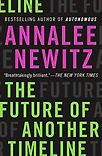
The Female Man by Joanna Russ
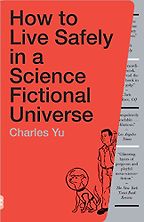
How to Live Safely in a Science Fictional Universe by Charles Yu
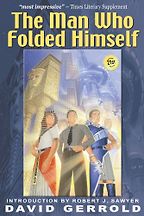
The Man Who Folded Himself by David Gerrold

Kindred by Octavia Butler
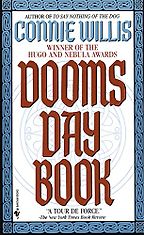
Doomsday Book by Connie Willis
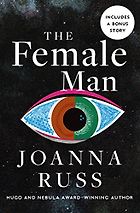
1 The Female Man by Joanna Russ
2 how to live safely in a science fictional universe by charles yu, 3 the man who folded himself by david gerrold, 4 kindred by octavia butler, 5 doomsday book by connie willis.
A s the author of the highly acclaimed novel The Future of Another Timeline , you’ve agreed to recommend us five of the best time travel books. On your website you write that your science fiction is inspired by the technology you cover as a science journalist, but that comes with a disclaimer: “Warning: not all contents are entirely based on plausible scientific principles.” I suspect this is where time travel comes in.
I think that’s why time travel is such a satisfying fantasy – at least the version of it that I do in my book, where characters can actually change the past. It becomes a metaphor for how we change things in the present, as well as how our relationship to the past changes us in the present. Here in the US, for example, we’ve just had a huge debate over how slavery should be taught in history classes – because the way we teach slavery, and the way we understand it, changes our relationships in the present day. History is so powerful.
It’s frustrating because, unlike a scientific phenomenon, you can’t just pull up a chart or point to it and say, ‘I have one particle of history right here.’ We all disagree over the goddamn particle – what direction it’s moving in, what way it’s spinning. So that’s frustrating, right? The allure of time travel is: we will go back there, and we will figure out exactly what happened. Which of course forgets that even when something happens in the present, right there in front of you, two people could still plausibly disagree over what just happened.
Absolutely, and you’ve selected some absolute classics for us to discuss. Let’s talk about your first choice: Joanna Russ’s The Female Man , published in 1975.
This is one of the science fiction novels that influenced me from the very beginning. I read it when I was in college, having stopped reading science fiction for a while but come back to it. There’s definitely both a science fictional element and a kind of magic realist element to this book.
It’s the story of three women living in different time periods, kind of alternate histories. As the book unfolds, we start to think that maybe these are all the same woman. One is living in a kind of alternate 1930s. One of them is from the future, where there’s a battle between patriarchs and feminists – she’s a warrior. And she comes back in time to the 1960s, the ‘present day’, to try to change things, where she winds up having an ambiguous romance with one of the women in the present.
And, at the same time, on top of this time travel story – which is your classic ‘I’ve come to warn you about a dangerous future’ story – it’s also a record of all the mundane microaggressions that women are experiencing in all these different contexts and places. For me, that’s the part that really stood out. Joanna Russ is such a great observer of human behaviour, and she’s really sensitive to how different historical periods produce different kinds of gender-based insults and aggressions.
“Time travel becomes a metaphor for how we change things in the present”
There’s a fantastic scene at a faculty party for professors in a humanities department, which is written as a play. It’s just dude after dude making these snotty little assertions about women, and our character – who’s a woman professor – having to navigate this room full of assholes. That was set in what was then the present day. Reading it now, it feels like a glimpse of second wave feminist history.
So it’s just delightful: really angry and fierce, just like all of Joanna Russ’s work, and it has some pretty weird twists and turns. It still holds up, especially if you look at it as a record of this moment in feminism when women were finally pushing back – and how they did it.
There’s a character, Jeannine, who lives in the timeline in which the Great Depression never ended. It suggests that the financial crisis caused women to rely ever more on men and marriage. This feels newly relevant again, having read a lot about how lockdown and the resultant economic crash is having a disproportionate impact on women.
One of the big existential threats for women, especially feminists, is that with just a few wrong turns politically, we could once again be reduced to property. That’s obviously the fear at the heart of The Handmaid’s Tale , where suddenly there’s a presidential decree that states that women can no longer control their finances. That’s the big turning point in the dystopia.
So, like a lot of women, Joanna Russ was really haunted by that fear. You know: ‘What if I couldn’t have a job, and had to rely on men?’ That’s terrifying. So there are a lot of ways that can happen – through economic downturn, through the rise of a really right-wing government… And, like I said, this book is a smorgasboard of the terrible things that can transform gender relationships, and make them less equitable.
The main character is called ‘Joanna,’ which I thought was a nice postmodern detail.
Yes, let’s move on to that. This is Charles Yu’s How to Live Safely in a Science Fictional Universe .
The character is named Charles and is visiting himself and having internal debates with different versions of himself. Different kinds of weird temporal anomalies start haunting his whole life. I think there’s something about time travel that invites this kind of meta-relationship with one’s self. Because that’s the other fantasy of time travel: getting to meet yourself and have a conversation with yourself, and try to figure out why you did all those dumb things.
Tell us more about the concept of the book.
Yu is a guy who is travelling around in a time machine. There are a couple of hints about what he’s doing. He is a time machine repairman working for a company, but he might be doing things to try to fix his own life. And the narrative is interspersed with stories about his childhood, his relationship with his father – who was desperately trying to invent a time machine – and his relationship with his mother who – and this is one of the parts of the book that I love – is stuck in a time loop.
She’s reliving the same moments over and over again, like she’s in a Groundhog Day trope. So she’s travelling through time also, but in a really different way to the main character. That was one of the things I loved about this book – that it’s really about time travel, and also about our different relationships with time and how psychological problems can manifest themselves as temporal anomalies.
Oh, I get it. Clever.
Part of the point of the book is that this main character is so haunted by his childhood that it’s kind of kicked him out of time. Like The Female Man , even though it deals with these sombre themes of loss and unrequited love – I don’t necessarily mean romantic love – it’s incredibly funny. His voice, Charles Yu’s voice, is just so hilarious. And he’s very wise, and makes lots of great pop culture references. It’s a commentary on time travel, but at the same time a very straightforward story about childhood, and how to grow up from childhood trauma.
This book has popped up on our site before. Beth Bloom, an English professor at Harvard, recommended it as a ‘self-help novel ,’ and said that he “uses the concept of time travel to think through common and practical questions of how to deal with nostalgia, parents, immigration and regret.”
I would endorse that, for sure. A lot of it does deal with immigration and with feeling a kind of cultural dislocation. There are a couple of great moments where he talks, for example, about how his father speaks Mandarin, which doesn’t have tenses. Or, it doesn’t have verb tenses, although it has other tense markers. That causes problems for his dad, because he’s trying to think through time travel in a language that deals with time in a different way to the way English does. I really loved that detail. It’s a kind of Easter egg moment, when you hear the characters referencing that. So that’s really delightful.
You mentioned the time travel book fantasy of meeting ourselves a few moments ago. I think that brings us to The Man Who Folded Himself by David Gerrold…
I think it does! David Gerrold is probably most well-known for writing the Star Trek episode “The Trouble with Tribbles,” which is a classic, incredibly silly, episode from the original Star Trek , where suddenly a bunch of tiny, fluffy, squeaky balls start reproducing like bunnies on the Enterprise. He wrote that when he was, I think, 18 – or, he was very young – and it was his first sale. He went on to do a lot more science fiction that was silly, but with an underlying story about sexuality at the same time.
The Man Who Folded Himself came out around the same time as The Female Man . It’s about a guy who discovers that his family has this device, a belt that allows you to travel through time, and his uncle has been basically using it to play the stock market. He passes it on to the main character and is like, ‘Here, do this to get rich,’ basically. So from the outset you know that these are not characters who are going to be trying to ‘preserve the timeline,’ the way a classic time traveller does. They’re like, ‘Nope, we’re here to get rich and have fun!’
“It’s less teaching people about how science works, and more teaching people how history works”
So he goes around doing that. But mostly what he does is meet versions of himself. He keeps re-encountering himself for a variety of reasons, and at a certain point there are so many versions of himself travelling around and crossing paths that they all buy a giant luxury timeshare together. There are hundreds of them. And they have giant orgies. He meets a female version of himself, but he also has a lot of gay orgies with himself in this book, which I find delightful, because it’s the kind of time travel thought experiment that we’ve all imagined, but David Gerrold went there! He was like: ‘Yeah, of course I want to have sex with 1000 versions of myself.’
He was openly gay at a time when being openly gay in Hollywood and in the publishing industry was a lot harder than it is now. And he just leaned into it. He was like: ‘This is what it’s all about! Gay time travel!”
I think there’s probably something inherently queer about time travel. Joanna Russ would probably agree with me. David Gerrold is the master of this.
This book reminds me a lot of Back to the Future in terms of tone. It’s very light. There’s no horrible threat, no childhood trauma. Just, ‘hey man, it’s the seventies, let’s get high.’ It’s delightful. It’s a bit of a time capsule, but at the same time, no one else has written that story since – you know, fun gay orgies with yourself. So I hope we can bring back the happy gay time travel story.
Here’s hoping. Talking about meeting a past version of yourself, can we talk a little about the paradoxes of time travel, and how authors deal with that – or get around it?
Sure. As an author of a time travel book, I was not interested in paradoxes. I’m just not personally invested in the paradox structure. But it is, of course, incredibly important to the genre – you know, the idea that you could go back in time and change your own history. That leads to a number of different paradoxes. Could you become your own grandfather? Or does your dad always have to go back in time to impregnate your mom?
These kinds of questions fit neatly into the idea of “preserving the timeline,” or keeping history exactly as it was. And that’s a really easy plot device: we have to preserve the timeline to avoid the paradox. So you can see why people get into it, and why it’s a fun mental exercise. But if you play out the paradox, plot-wise, you see that the only endgame is going to be: ‘okay, then we have to make sure everything happens in exactly the same way it has already happened.’ I’m sure there are exceptions, but I think this plot device lends itself to a conservative bent in time travel stories. You can’t change history, only preserve it, no matter how terrible it was. Because if you don’t, you won’t be born. Or, your country won’t be founded. Something like that. Trying to preserve the past is the time travel equivalent of saying “Make America great again.” Don’t change the past, and don’t change the present.
Alternatively, you could toss the paradox thing out and say: “Screw it. We’re going to change the past.” I think that’s the more interesting and radical approach.
Which is what you do in The Future of Another Timeline .
This is your next recommendation, Octavia Butler’s Kindred .
It’s a real classic. Butler gives a really different twist to the question of preserving the timeline. This is another book from the 1970s. She’s a writer, and she’s black, and she’s happily partnered with this white guy. Then she’s snatched back in time – she doesn’t know why, it’s just a weird, sort of magical thing, there’s no time machine or anything – to a plantation in the American South before the Civil War .
It’s a plantation with slaves, and it turns out that her ancestor – her great, great, great… I don’t know how many greats – was a slave owner. So she’s been sent back to do the classic time travel plot: protect your ancestors so that you can be born. Except her ancestor is this racist bastard who raped her female ancestor. She basically has to become friends with this guy, to protect him. At a certain point, her white partner is sucked back in time as well, and has to cope with living in the Antebellum South. So we get to see their different experiences as a white person and a black person.
“She’s beloved in the sci-fi community, she’s treated as literature in English departments, and she’s just a giant of 20th-century fiction, period”
For me, as a reader and writer, the only way I can get excited about a time travel paradox is when there are these larger social questions that have to be answered. Octavia Butler always forces you, as a reader, to jam your face right into all the contradictions and injustices in society, and how much we allow them to continue happening in order to survive.
So she’s posed this question: ‘What if you had to save your white, slave-owning ancestor?’ It’s such a great metaphor, or conceit, for why it is that we buy into unjust systems; how we get emotionally bribed into participating in systems that oppress us. It’s so good. There’s a reason this book is taught in so many classes. So my favourite paradox is Kindred .
Before we move on, could you speak a bit more about Butler’s significance to the field? I mean, Kindred is considered a classic of both science fiction and African American literature. She won all the awards going, I think.
Thanks. I think that brings us to the final time travel book recommendation you want to make: Connie Willis’s Doomsday Book . It’s about a time-travelling historian. I mean, perfect.
I love Connie Willis’s world-building around time travel. I think some of her most famous books are time travel novels. Doomsday Book is certainly one of her best-known books, although she’s written a number of novels and won lots of awards for them.
Like a number of the other authors we’ve talked about – Joanna Russ, Charles Yu, David Gerrold – she has a wicked sense of humour. Doomsday Book is not one of her comic novels, but it has a lot of funny bits. She’s able to balance a very tragic story of a historian going back in time to observe the Black Death – the 14th-century plague that knocked out almost 50% of the population. And she, the historian… I don’t know if this is a spoiler, if the book came out a billion years ago?
Oh, we’re very relaxed about that here.
Well, the historian is just intending to go back for a short period, just to witness – to see what history was really like. But she gets stuck. A classic time travel snafu: something goes wrong when she comes through the portal and she’s trapped in the Middle Ages for months. She has to figure out how to live. She doesn’t know if she’ll ever be rescued. So she integrates herself into the life of a small village. She’s taken in by a family and comes to really love them. As do we, as readers.
The thing that Connie Willis is great at – she’s like Charles Dickens – is evoking weird, eccentric lovable characters. By the time you’re halfway through this novel, you’re like: ‘I love all these people. All I want to do is read romance books about the people in this village.’ And that’s when she starts killing them with the plague.
It’s a great work – of historical fiction , almost. It really forcefully makes you understand what it’s like to live through a really deadly pandemic , which could literally kill an entire village. You know, we’re in a pandemic right now, so it might be an interesting book for people to pick up, just to make you feel a little better about living through a pandemic that’s killing a very tiny percentage of the population.
Support Five Books
Five Books interviews are expensive to produce. If you're enjoying this interview, please support us by donating a small amount .
I love the conceit that time travel has been invented, but the only people who care about it are historians. It kind of reminds me of a time travel novella which I love by Kelly Robson, called Gods, Monsters, and the Lucky Peach . That’s very similar in that there’s time travel – holy shit! – but the only people who care about it are bureaucrats who work in environmental remediation, because they want to go back to ancient periods of time to take environmental samples, to see what the environment was like before pollution. So it’s a nerdy thing that only dorky scientists do. That’s exactly what Connie Willis captures: for some reason, nobody really cares about time travel except for this group of academics.
I definitely stole that idea for my novel, The Future of Another Timeline , where it’s basically academics puttering around in time, mostly just writing papers about it, which no one will read except their colleagues. We always imagine that if we had time travel, our whole world will be transformed, but from Connie Willis’s point of view it’s ‘yeah, a couple of people will write some dissertations.’
At the same time, like I said, it’s an incredibly moving book, and good for our time right now.
To close, could you tell us a little bit about the process of writing a time travel novel. How did you go about plotting this, with these moving timelines, and taking in real episodes in history? It must have required a lot of preparation and planning.
I did do a lot of research. My characters are from a little bit in the future, 2022. So, present day, basically, and they go back to the 1990s, which I lived through. So it wasn’t hard for me to recreate that. But then they go back to the 1890s, then back to 2000 years ago – classical antiquity. Then they go about half a billion years back, to the Ordovician period, long before there was life on land. Some of those periods I had written about before as a journalist. The Ordovician is one of my favourite geological periods; it was when life diversified the most, and spread across the oceans. Also, there was a giant supercontinent in the southern hemisphere, which is pretty rad. It was just a cool, cool time in the planet’s history.
So I already knew about that, although I did still interview a researcher about what you would eat if you went back to the Ordovician. I had thought they would eat trilobites, but he said no – trilobites didn’t have very much meat. He suggested that they eat giant sea snails. So that was fun.
Get the weekly Five Books newsletter
For the sections in the 1890s, where the characters go back to do political organising, they’re fighting against actual historical figures who were trying to destroy women’s rights. That took a lot of research, and as I was writing I kept doing more research and adding more stuff. Even when I was done, Patrick Nielsen Hayden, the editor-in-chief of Tor Books, read it and said: ‘I spent some time looking at train schedules from the 1890s and, actually, I think this is the train route they would have taken.’ So even the train routes are accurate, thanks to Patrick.
There were a lot of very tiny historical details that I was really concerned about. I was interested in things like how much a person would get paid to be a seamstress in 1892, that sort of thing. I wanted the past to feel really lived in. There are a few cosmic moments in the book — they are traveling through time and people talk about goddesses occasionally. But as a writer I was most interested in the research. And of course, I made a lot of charts, planning how the timeline would change and what things would diverge.
There’s a twist in the story, so I had to plot all that out. That was fun, but I will never do it again. Way too much plotting for me. In the novel I’m working on now, there’s no twist. There’s a giant volcano war, but no twist.
Finally: if you could time travel, knowing what you know about time travel from fiction, would you?
I guess it would depend on what kind of time travel. If it was super safe, I could just go back and hang out and come back Bill and Ted- style, then yes, I definitely would. For sure.
October 12, 2020
Five Books aims to keep its book recommendations and interviews up to date. If you are the interviewee and would like to update your choice of books (or even just what you say about them) please email us at [email protected]
©Sarah Deragon
Annalee Newitz
Annalee Newitz writes science fiction and nonfiction. They are the author of the book Four Lost Cities: A Secret History of the Urban Age , and the novels The Future of Another Timeline, and Autonomous , which won the Lambda Literary Award. As a science journalist, they are a contributing opinion writer for the New York Times , and have a monthly column in New Scientist. They have published in The Washington Post, Slate , Popular Science, Ars Technica , The New Yorker , and The Atlantic , among others. They are also the co-host of the Hugo Award-winning podcast Our Opinions Are Correct . Previously, they were the founder of io9 , and served as the editor-in-chief of Gizmodo .
We ask experts to recommend the five best books in their subject and explain their selection in an interview.
This site has an archive of more than one thousand seven hundred interviews, or eight thousand book recommendations. We publish at least two new interviews per week.
Five Books participates in the Amazon Associate program and earns money from qualifying purchases.
© Five Books 2024
Authors & Events
Recommendations

- New & Noteworthy
- Bestsellers
- Popular Series
- The Must-Read Books of 2023
- Popular Books in Spanish
- Coming Soon
- Literary Fiction
- Mystery & Thriller
- Science Fiction
- Spanish Language Fiction
- Biographies & Memoirs
- Spanish Language Nonfiction
- Dark Star Trilogy
- A Joe Pickett Novel
- Penguin Classics
- Award Winners
- The Parenting Book Guide
- Books to Read Before Bed
- Books for Middle Graders
- Trending Series
- Magic Tree House
- The Last Kids on Earth
- Planet Omar
- Beloved Characters
- The World of Eric Carle
- Llama Llama
- Junie B. Jones
- Peter Rabbit
- Board Books
- Picture Books
- Guided Reading Levels
- Middle Grade
- Activity Books
- Trending This Week
- Romantasy Books To Start Reading Now
- Page-Turning Series To Start Now
- Books to Cope With Anxiety
- Short Reads
- Anti-Racist Resources
- Staff Picks
- Memoir & Fiction
- Features & Interviews
- Emma Brodie Interview
- James Ellroy Interview
- Nicola Yoon Interview
- Qian Julie Wang Interview
- Deepak Chopra Essay
- How Can I Get Published?
- For Book Clubs
- Reese's Book Club
- Oprah’s Book Club
- happy place " data-category="popular" data-location="header">Guide: Happy Place
- the last white man " data-category="popular" data-location="header">Guide: The Last White Man
- Authors & Events >
- Our Authors
- Michelle Obama
- Zadie Smith
- Emily Henry
- Amor Towles
- Colson Whitehead
- In Their Own Words
- Qian Julie Wang
- Patrick Radden Keefe
- Phoebe Robinson
- Emma Brodie
- Ta-Nehisi Coates
- Laura Hankin
- Recommendations >
- Books To Read if You Love Challengers
- Western Romance Novels
- Insightful Therapy Books To Read This Year
- Historical Fiction With Female Protagonists
- Best Thrillers of All Time
- Manga and Graphic Novels
- happy place " data-category="recommendations" data-location="header">Start Reading Happy Place
- How to Make Reading a Habit with James Clear
- Why Reading Is Good for Your Health
- 10 Facts About Taylor Swift
- New Releases
- Memoirs Read by the Author
- Our Most Soothing Narrators
- Press Play for Inspiration
- Audiobooks You Just Can't Pause
- Listen With the Whole Family

Look Inside
Mental Time Travel
Episodic Memory and Our Knowledge of the Personal Past
By Kourken Michaelian
Part of life and mind: philosophical issues in biology and psychology, category: psychology | philosophy.
Feb 06, 2024 | ISBN 9780262551151 | 6 x 9 --> | ISBN 9780262551151 --> Buy
Feb 19, 2016 | ISBN 9780262334587 | 6 x 9 --> | ISBN 9780262334587 --> Buy
Buy from Other Retailers:

Feb 06, 2024 | ISBN 9780262551151
Feb 19, 2016 | ISBN 9780262334587
Buy the Ebook:
- Barnes & Noble
- Books A Million
- Google Play Store
About Mental Time Travel
Drawing on current research in psychology, a new philosophical account of remembering as imagining the past. In this book, Kourken Michaelian builds on research in the psychology of memory to develop an innovative philosophical account of the nature of remembering and memory knowledge. Current philosophical approaches to memory rest on assumptions that are incompatible with the rich body of theory and data coming from psychology. Michaelian argues that abandoning those assumptions will result in a radically new philosophical understanding of memory. His novel, integrated account of episodic memory, memory knowledge, and their evolution makes a significant step in that direction. Michaelian situates episodic memory as a form of mental time travel and outlines a naturalistic framework for understanding it. Drawing on research in constructive memory, he develops an innovative simulation theory of memory; finding no intrinsic difference between remembering and imagining, he argues that to remember is to imagine the past. He investigates the reliability of simulational memory, focusing on the adaptivity of the constructive processes involved in remembering and the role of metacognitive monitoring; and he outlines an account of the evolution of episodic memory, distinguishing it from the forms of episodic-like memory demonstrated in animals. Memory research has become increasingly interdisciplinary. Michaelian’s account, built systematically on the findings of empirical research, not only draws out the implications of these findings for philosophical theories of remembering but also offers psychologists a framework for making sense of provocative experimental results on mental time travel.
In this book, Kourken Michaelian builds on research in the psychology of memory to develop an innovative philosophical account of the nature of remembering and memory knowledge. Current philosophical approaches to memory rest on assumptions that are incompatible with the rich body of theory and data coming from psychology. Michaelian argues that abandoning those assumptions will result in a radically new philosophical understanding of memory. His novel, integrated account of episodic memory, memory knowledge, and their evolution makes a significant step in that direction.
Michaelian situates episodic memory as a form of mental time travel and outlines a naturalistic framework for understanding it. Drawing on research in constructive memory, he develops an innovative simulation theory of memory; finding no intrinsic difference between remembering and imagining, he argues that to remember is to imagine the past. He investigates the reliability of simulational memory, focusing on the adaptivity of the constructive processes involved in remembering and the role of metacognitive monitoring; and he outlines an account of the evolution of episodic memory, distinguishing it from the forms of episodic-like memory demonstrated in animals.
Memory research has become increasingly interdisciplinary. Michaelian’s account, built systematically on the findings of empirical research, not only draws out the implications of these findings for philosophical theories of remembering but also offers psychologists a framework for making sense of provocative experimental results on mental time travel.
Also in Life and Mind: Philosophical Issues in Biology and Psychology
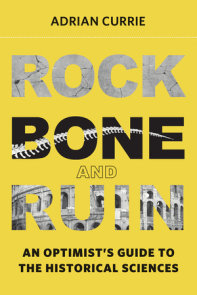
Product Details
You may also like.
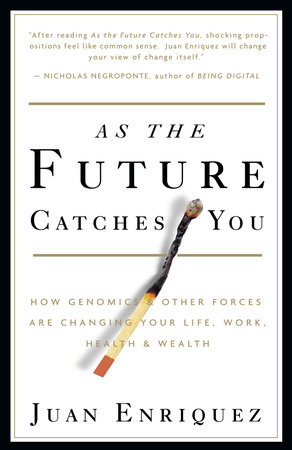
As the Future Catches You
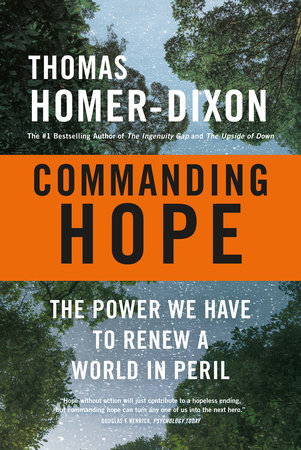
Commanding Hope
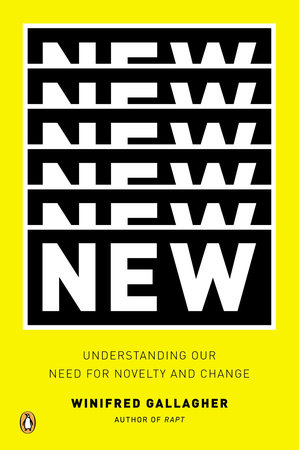
In the Palaces of Memory
[T]his work has led me to consider questions that I had never thought about in my four decades of memory research. This is an essential book for anyone interested in memory.
Michaelian’s book is a very valuable contribution to the small, but growing, philosophical literature on what is perhaps the most intriguing of the various phenomena involved in remembering.
…crisp and impressive.
Mental Time Travel is a comprehensive look at the metaphysics, epistemology, and evolution of episodic memory that will be of interest to philosophers and psychologists alike.
Visit other sites in the Penguin Random House Network
Raise kids who love to read
Today's Top Books
Want to know what people are actually reading right now?
An online magazine for today’s home cook
Just for joining you’ll get personalized recommendations on your dashboard daily and features only for members.

20 Must-Read Time Travel Books
Dana lives in East Haven, CT. She works for that Ivy League institution down the street and tries to read as many books as possible in her free time. Audiobooks and print books get equal love. Also, she unapologetically judges books by their covers and makes way too many playlists (c'mon, books need a soundtrack too!). Follow her on Twitter @lucyhenley115 .
View All posts by Dana Lee
Hear me out, there’s a sub-genre of sci-fi that that has a touch of anything you could ever want: time travel books. The best time travel books come in all packages: adventure, historical fiction, romance, social commentary, mystery, humor, poetry. It really has it all. So, if you can still recite the opening credits of Quantum Leap from memory, this list is for you. Enjoy these must-read time travel books.
Here and Now and Then by Mike Chen
Kin is a time-traveling agent from the year 2142 who gets stuck in 1990s San Francisco after a botched mission, and his rescue team shows up 18 years too late after he’s already built a life for himself. Here and Now and Then has all those warm and fuzzy sci-fi feels with just the right amount of Doctor Who level angst . Kin dealing with the circumstances of time travel and the consequences it brings about is super compelling and emotional and so, so worthy of a Murray Gold score.
The Future of Another Timeline by Annalee Newitz
In the world of Another Timeline , time travel has been around since forever in the form of a geologic phenomena known as the “Machines.” Tess belongs to a group called the Daughters of Harriett, determined to make the future better for women by editing the timeline at key moments in history. They run up against the misogynistic group called the Comstockers working towards the opposite goal. There’s time travel, murder, punk rock concerts, nerd references, and an edit war. As Newitz recently said in an extra of their podcast, Our Opinions Are Correct , history is a “synthesis of good fuckery” and I can’t think of a better phrase to describe this book than that.
An Ocean of Minutes by Thea Lim
There is a deadly flu pandemic in America. Polly’s boyfriend Frank gets sick and she signs up for a one-way ticket to the future to work off the cost of Frank’s cure. They agree to meet up in the future, but Polly is rerouted to a later time where America is divided and she has no connections and no money. This is a really gorgeously written and heart-wrenching story about time travel, dystopian society, the brutality of survival in an unfamiliar world, and a character study of a normal person dealing with it all.
Kindred by Octavia Butler
Dana is an African American woman celebrating her birthday in 1976 California when she is pulled through time to Antebellum Maryland. She saves a young white boy named Rufus from drowning and finds herself staring down the barrel of his father’s rifle. She is pulled back to her present just in time to save her life, appearing back in her living room soaked and muddy. She is repeatedly pulled back to the past encountering the same young man. Over the course of these harrowing episodes, Dana realizes her connection to Rufus and the challenge she is faced with. This is a brilliant, thought-provoking, and intense book that is required reading for so many reasons least of which is time travel.
Alice Payne Arrives by Kate Heartfield
Alice Payne Arrives is a quick romp through time with some truly amazing female characters. Alice Payne is a half-black queer woman in 1788 England living in her father’s deteriorating mansion. She’s also a notorious masked highway robber and her partner is an inventor. Prudence is a professional time traveler from the 22nd century working fruitlessly to try and change one small event in 1884. The two women cross paths and work together to put Prudence’s plan to end time travel in motion. This novella packs a lot of action and time travel goodness and there’s a sequel called Alice Payne Rides . It also contains one of the realest lines of any of the time travel books I’ve read: “2016’s completely fucked.”
How to Live Safely in a Science Fictional Universe by Charles Yu
Charles Yu is a time machine repairman searching for his missing father, “accompanied by TAMMY, an operating system with low self-esteem, and Ed, a nonexistent but ontologically valid dog.” He receives a book from his future self that could help him locate his father. The book is called How to Live Safely in a Science Fictional Universe and he wrote it. Hi, this book is super cool, fun, clever, and weird in the best ways. It has the highest distinction I can give a sci-fi book and that is warm and fuzzy.
The Psychology of Time Travel by Kate Mascarenhas
Four female scientists invent time travel in 1967. One of the scientists, Bee, suffers a mental breakdown just before they’re about to go public with their findings. The other three exile Bee from the project to save face. Fifty years later time travel is a normal part of life and a huge business. It’s regulated by the Conclave, founded by three of the original scientists, which seeks to self govern all aspects of time travel. The Psychology of Time Travel serves up time travel with a locked-door mystery and the payoff of alternating perspectives and timelines slowly coming together.
The River of No Return by Bee Ridgeway
At the moment of his death on a Napoleonic battlefield, Lord Nicholas Falcott wakes up in the 21st century. He’s recruited by a time travel agency known as The Guild for training. Julia Percy lives in 1815 England and after the death of her grandfather seeks to find her place in a world where meddling with time is commonplace. There’s a whole lot going on here: romance, betrayal, double-agents, and drawing on emotion to facilitate time jumps, leading to my favorite line: “Though really they were probably both insane. Two grown men dressed up like Mr. Darcy, holding hands behind a tree, trying to pull themselves by the heart strings back to the long ago.”
This is How You Lose the Time War by Amal El-Mohtar and Max Gladstone
Blue and Red are fighting on opposite sides of an endless time war. They begin to exchange letters on the battlefield, first as a boast, then as an exploration of friendship across enemy lines, and finally as a romance. I have previously described this as “poetic sci-fi realness.” I could be more professional and say that this is an epistolary work of rival agents forming a bond despite their opposition, but like I can’t okay. This book is so intricate and beautiful and the letters are not on paper, they could be in the dregs of a teacup or the rings of a tree, and I’m not crying you’re crying.
All Our Wrong Todays by Elan Mastai
Tom is a misfit in a utopian world, and he goes back in time and accidentally screws up the future. This mishap leaves him stranded in our 2016, but what we think of as the real world is a dystopian wasteland to Tom. He eventually finds different versions of everything he knows and maybe even his soulmate. Tom has to decide whether to fix the timeline and bring back utopia or live in this new version of the world he’s created. Probably me as a time traveler, tbh.
The Fire Opal Mechanism by Fran Wilde
The Fire Opal Mechanism is technically a sequel to The Jewel and Her Lapidary , but it can definitely be read as a stand-alone. Ania is a librarian at the last university desperately trying to save as many books as she can. All the other universities have fallen to the Pressman, an extremist group bent on destroying all the world’s books and replacing them with a generic, self-updating compendium available to everyone regardless of economic class. Jorit, branded a thief, is on the run just trying to survive long enough to afford passage on a ship away from all these problems. They team up and inadvertently discover time travel, but will it help them fix the present? This is really beautifully written, especially the passages about books: “Touching a book, for Ania, was like touching a person’s fingertips across the years. She could feel a pulse, a passion for the knowledge the book contained.”
The Silver Wind by Nina Allan
The Silver Wind is a series of stories linked by the character Martin Newland. Each story is like an alternate universe brought about by time machines and time travel. As Allan describes on her website : “While the overarching theme of this book might properly be found in Martin’s struggle with infinity, its individual chapters deal with those small acts of creative defiance that determine our transcendence of ordinary mortality.” A thoroughly thought-provoking déjà vu experience.
What the Wind Knows by Amy Harmon
Anne Gallagher travels to Ireland to scatter the ashes of her beloved grandfather. She is pulled back in time to the Ireland of 1921 and is mistaken as the long-lost mother of a young boy. She assumes this identity and is drawn into the lives of those around her and the political unrest of the time. It’s a historical romance perfect for fans of Outlander.
The Shining Girls by Lauren Beukes
What if time travel fell into the hands of a criminal? The Shining Girls is the story of serial killer named Harper Curtis who stumbles upon an abandoned house in Depression-era Chicago that allows him to travel in time. He chooses his victims and visits them at different times of their lives before returning for the kill. Kirby survives Harper’s attack and, along with a former homicide reporter, tries to unravel the mystery before anyone else dies. This book is wild, W-I-L-D. There’s a lot of violence, so it might not be for everyone, but it’s such an interesting take on the time travel story.
Version Control by Dexter Palmer
Set in the near-future, Rebecca works in the customer support department of the dating site where she met her husband Phillip. He is a scientist building a causality violation device (definitely not a time machine!). But Rebecca can’t help but feel that there’s something wrong with the present. So, this is kind of about living with technology and kind of about relationships and overcoming tragedy and also time travel. Intelligent and poignant but make it sci-fi.
How to Invent Everything: A Survival Guide for the Stranded Time Traveler by Ryan North
Starting out with an FAQ guide to your rented time machine, How to Invent Everything humorously goes through the history of well, everything. From how to determine what time period you have landed and are now stuck in to inventing language and electricity it’s a very Hitchhiker’s Guide -ish look at history presented as a guide for creating the things you’ll miss when you’re stranded in an earlier timeline than your own.
Time After Time by Lisa Grunwald
It’s 1937 and Joe Reynolds is a hard-working railroad man at Grand Central Station. Nora Lansing is an aspiring artist and the last thing she remembers is her train crashing in 1925. They meet at the big clock and Joe walks Nora home, but she disappears in the street. She reappears one year later and meets Joe again. Realizing she’s jumping in time and trapped in Grand Central for mysterious reasons that might have something to do with Manhattanhenge, Nora and Joe try to unravel the mystery before she disappears again. For me this was a time travel books mashup of The Clock meets Kate & Leopold meets Gentleman in Moscow and I was very about it.
TimeKeeper by Tara Sim
TimeKeeper takes place in an alternate Victorian world where time is controlled by clock towers. Danny is a young clock mechanic enamored with his new apprentice, who turns out to be the Enfield clock spirit, Colton. Bombings at other towers start to occur and broken clocks mean the towns they oversee will be frozen in time. The romance between Danny and Colton is very adorable and the race against literal time is an exciting backdrop. It’s the first in a trilogy.
Bones of the Earth by Michael Swanwick
If you’re a time travel fan then this sentence from the publisher’s summary is sure to get you excited, “World-renowned paleontologist Richard Leyster’s universe changed forever the day a stranger named Griffin walked into his office with a remarkable job offer…and an ice cooler containing the head of a freshly killed Stegosaurus.” Time travel allows a group of scientists to go back and study dinosaurs up close in their natural environment. If you are now humming the Jurassic Park theme, please know, So. Am. I.
Just One Damned Thing After Another (Chronicles of St. Mary’s) by Jodi Taylor
There is so much going on in this whirlwind adventure that if you blink you’ll miss a major plot point. Just One Damned Thing After Another is just the first book in a series of the adventures of St. Mary’s Institute of Historical Research as they rattle around through time trying to answer history’s unanswered questions. There are currently 11 books published and forthcoming and a ton of short stories that fill in the blanks between adventures. Taylor also has a spinoff time travel series, The Time Police, with the first book just out called Doing Time . It follows three hapless new time police recruits as they try to keep the timeline straight.
Looking for more of the best time travel books? Check out these timey-wimey posts:
Time Travel Romances
7 of the Best Alternate Timeline Books
The Lack of Black Characters in Time Travel Romance

You Might Also Like

Editorial: Memory as Mental Time Travel
- Published: 02 June 2020
- Volume 11 , pages 223–232, ( 2020 )
Cite this article

- André Sant’Anna ORCID: orcid.org/0000-0002-2239-7243 1 ,
- Kourken Michaelian ORCID: orcid.org/0000-0002-5205-3046 1 &
- Denis Perrin ORCID: orcid.org/0000-0002-3206-0345 1
5390 Accesses
4 Citations
6 Altmetric
Explore all metrics
Originally understood as memory for the “what”, the “when”, and the “where” of experienced past events, episodic memory has, in recent years, been redefined as a form of past-oriented mental time travel. Following a brief review of empirical research on memory as mental time travel, this introduction provides an overview of the contributions to the special issue, which explore the theoretical implications of that research.
Avoid common mistakes on your manuscript.
1 Episodic Memory Revisited
This section relies in part on material published in Perrin & Michaelian 2017 .
The idea that episodic memory is a form of mental time travel has had an enormous impact on research in psychology and is becoming increasingly influential in philosophy. The idea, however, is relatively recent. When Tulving ( 1972 ) first introduced the term “episodic memory”, he defined it essentially as a specialized store devoted to information about the “what”, the “when”, and the “where” of experienced past events. This definition was meant to differentiate episodic memory both from nondeclarative memory, devoted in part to skills and habits, and, within the category of declarative memory, from semantic memory, devoted to general facts. While the “WWW” definition was broadly compatible with traditional analyses of what philosophers had referred to as recollective, experiential, or personal memory (Brewer 1996 ), including the popular causal theory (Martin and Deutscher 1966 ; Bernecker 2010 ), it was unable to distinguish between episodic memory and semantic memory, simply because semantic memory, too, is capable of storing information about the what, the when, and the where of events.
This problem for the WWW definition, together with accumulating evidence of a tight relationship between the ability to remember the past and the ability to imagine the future, subsequently led most psychologists, again following Tulving’s ( 1985 , 1993 , 2002 ) lead, to redefine episodic memory as a form of mental time travel (MTT) in which the subject imaginatively re-experiences past events, just as, in episodic future thought, he or she imaginatively “pre-experiences” future events (Michaelian et al. 2016 ; De Brigard 2017 ). This definition, which emphasizes the subjective experience of remembering, departs in important ways from traditional philosophical analyses, which assume that there is a deep difference between remembering the past and imagining the future, and motivates new postcausal analyses, such as the simulation theory (Shanton & Goldman 2010 ; De Brigard 2014 ; Michaelian 2016b ). Two competing views of the relationship between episodic memory and episodic future thought have emerged in reaction to the tension between traditional theories and the MTT definition: continuism and discontinuism.
Continuism is the view that, though there may be differences of degree between episodic memory and episodic future thought, they are fundamentally processes or states of the same kind. This view is directly inspired by recent empirical findings. Perhaps the most impressive evidence in support of continuism comes from imaging studies, which have demonstrated that strongly overlapping regions of the brain are involved in episodic memory and episodic future thought, supporting the claim that a core (or default) network constitutes the neural basis for both forms of MTT (Addis et al. 2007 ; Schacter et al. 2007 ; Addis 2018 ; see also Addis’s paper in this issue). In addition to imaging evidence, continuism finds support in evidence coming from a variety of other sources. Studies of MTT in memory-impaired patients have found that deficits in the ability to remember one’s past are strongly correlated with deficits in the ability to imagine one’s future (e.g. Klein et al. 2002 ; Rosenbaum et al. 2005 ; Hassabis et al. 2007 ). Similarly, patients suffering from depression display parallel tendencies to remember the past and to imagine the future in overly general ways (Williams et al. 1996 ), and the capacities to remember past episodes and to imagine future episodes emerge in development at roughly the same age (Suddendorf and Busby 2005 ; Atance 2008 ; Perner et al. 2010 ; Suddendorf 2010 ; Viard et al. 2012 ). Further support for continuism comes from studies of phenomenological similarities between episodic memory and episodic future thought. Level of detail and intensity of experience vary with temporal distance in a similar manner in both forms of MTT (D’Argembeau and Van der Linden 2004 , 2006 ; D’Argembeau et al. 2011 ; Addis et al. 2011 ; Schacter et al. 2012 ), in line with Tulving’s ( 1985 ) claim that the same phenomenology—autonoetic consciousness, or consciousness of the self in subjective time—is involved in both remembering the past and imagining the future. And studies of autobiographical memory have found that episodic memory and episodic future thought are organized in a similar fashion, in the sense that autobiographical memories and autobiographical future events are embedded in the same narrative structures (Rathbone et al. 2011 ).
The empirical evidence is not, however, unambiguous. Discontinuism is the view that, though there may be certain similarities between episodic memory and episodic future thought, they are fundamentally processes or states of different kinds. This view has also received some empirical support. It has been shown, for instance, that remembered past events are associated with richer and more vivid sensory and contextual detail than imagined future events (D’Argembeau and Van der Linden 2004 , 2006 ; Addis et al. 2010 ) or imagined past events (Addis et al. 2010 ; De Brigard and Giovanello 2012 ), and the emotional valence of remembered and imagined episodes displays a similar discrepancy, with imagined future events being characterized by a greater positivity bias than remembered past events (Berntsen and Bohn 2010 ; Rasmussen and Berntsen 2013 ). This evidence may only suggest a difference of degree between episodic memory and episodic future thought, but other evidence seems to suggest a difference in kind. Imaging studies have revealed that imagining is more cognitively demanding than remembering and in fact draws on brain regions that are not solicited by remembering (D’Argembeau and Van der Linden 2004 ; Schacter and Addis 2007 ; Addis et al. 2007 ; Szpunar et al. 2007 ; McDonough and Gallo 2010 ; Martin et al. 2011 ), and there is evidence that impairments of certain brain regions affect episodic future thought but not episodic memory (Berryhill et al. 2010 ). Indeed, some researchers have even argued that two subsystems can be distinguished within the core network, with only episodic memory requiring reactivation of regions involved in the original processing of remembered information (Addis et al. 2009 ), and others have argued that imagining future events, in contrast to remembering past events, relies on conceptual knowledge to provide a scaffolding for the integration of episodic details (Irish et al. 2012 ; Duval et al. 2012 ); consequently, episodic future thought may be more schema-driven than episodic memory (Szpunar 2010 ; Irish et al. 2012 ; Duval et al. 2012 ; Rasmussen and Berntsen 2013 ; Klein and Steindam 2016 ).
Given that the empirical evidence does not unequivocally support continuism, the philosophy of memory may have a role to play in resolving the (dis)continuism debate. Recent philosophical research has begun to address questions pertaining to memory as MTT (see Michaelian et al., forthcoming for a review; see also Perrin 2016 , Michaelian 2016a , 2016b , Perrin and Michaelian 2017 , Sant’Anna 2018 ), but there is a need for more work to be done. The goal of this special issue is to bring together current work and to encourage further research on the implications of the MTT definition of memory.
The special issue results from a workshop on Mental Time Travel: Origins and Function organized by André Sant’Anna and Kourken Michaelian at the University of Otago in 2018 thanks to a grant from the Australasian Association of Philosophy’s Postgraduate Conference Fund to Sant’Anna. The papers contributed by the invited authors—Donna Rose Addis, Carl Craver, Jordi Fernández, and Markus Werning—result from their talks at the workshop.
2 Contents of the Issue
The papers making up the special issue cluster around five distinctive themes regarding the relationship between memory and MTT. (1) Craver ( 2020 ), Schwartz ( 2020 ) and Werning ( 2020 ) address questions related to the nature of remembering , including the distinct perspectives adopted by psychologists and philosophers when investigating memory, the function of memory, and the nature of memory traces. (2) Andonovski ( 2020 ), Aranyosi ( 2020 ) and Fernández ( 2020 ) tackle issues pertaining to the content of remembering , including the singularity of memory, the intentional objects of memory, and the phenomenology of memory and future thought. (3) Addis ( 2020 ) and Robins ( 2020 ) focus on the (dis)continuity of memory and imagination , showing, respectively, how continuist and discontinuist perspectives can be defended on the basis of recent empirical research. (4) Lin ( 2020 ) and McCarroll and Cosentino ( 2020 ), explore the relationship between MTT and the self by focusing on issues raised by observer-perspective representations in memory and imagination. Finally, (5) Grünbaum and Kyllingsbæk ( 2020 ) and Mac Cumhaill ( 2020 ), argue for novel forms of MTT , focusing on types of memory that they refer to, respectively, as memory for intentions and phasic memory.
2.1 The Nature of Remembering
Craver ( 2020 ) calls our attention to two different perspectives from which episodic memory might be investigated. From an “epistemic” perspective, he argues, remembering appears to be a capacity for keeping track of one’s own and others’ claims about the past. From an “empirical” perspective, in contrast, it appears to be a neurocognitive process analyzable in terms of the its underlying brain mechanisms. Craver challenges the assumption that the epistemic perspective, which has traditionally guided the work of philosophers, and the empirical perspective, which characterizes the work of psychologists, are in competition with each other. Rather than being in competition, he argues, they may represent complementary approaches, each of which has a distinctive contribution to make to our overall understanding of memory. Craver’s contribution thus appears to call into question a background assumption of the (dis)continuism debate: continuists typically argue from an empirical perspective, while many defences of discontinuism seem to adopt an epistemic perspective; if the two perspectives are equally legitimate, then the (dis)continuism debate may ultimately turn out to be misguided.
Schwartz ( 2020 ) takes up a question that has only recently begun to receive sustained attention, that of the function of memory. He contrasts the traditional storehouse view of memory, on which the function of memory is to enable remembering, with the recent simulationist view, on which the function of memory is to enable MTT. Pointing out that different concepts of function may have different consequences for the debate between advocates of the traditional view and advocates of simulationism and adopting a form of function pluralism, Schwartz argues that the strength of the case both for simulationism’s negative component (the claim that memory is not for remembering) and for its positive component (the claim that memory is for MTT) has been overstated. Simulationists will undoubtedly want to push back against this argument, but they will have to concede, at minimum, that Schwartz has shown that they must be more careful than they have been so far with respect to the function of memory.
Werning ( 2020 ) is likewise concerned with simulationism, proposing an account of remembering that departs in important ways both from the simulation theory and from the causal theory. On the one hand, he rejects standard formulations of the causal theory on the ground that they are empirically inadequate. On the other hand, he rejects the simulation theory on the ground that the reliability of memory cannot be explained unless remembering is assumed to require causal connection with the remembered event. He then develops his own view, “trace minimalism”, on which a causal connection is required for remembering but on which traces do not transmit representational content but merely store non-categorial and sequential hippocampal information which, when combined with semantic information, serve to regulate the production of contentful memories. This minimal conception of traces, Werning argues, supports the view that episodic memory is a natural kind distinct from episodic imagination, thus favouring discontinuism.
2.2 The Content of Remembering
Andonovski ( 2020 ) challenges the assumption that memory is a form of singular thought—an assumption that, he points out, is taken for granted in a number of current debates, including the causalist-simulationist controversy, in the philosophy of memory—arguing that several bodies of empirical evidence suggest that the representational contents of memory in fact vary along a continuum of specificity extending from particular events, through temporally extended events, to general events. He invokes three main bodies of evidence. First, a significant number of memories concern general rather than specific events, with memories at both ends of the continuum sharing numerous phenomenological and representational features. Second, consolidation and reconsolidation increase the overlap among the traces left by experienced events, which consequently end up representing only their commonalities. Third, the brain network associated with remembering is active not only when one attempts to remember a particular event but also when one attempts to remember an extended or a general event. Overall, then, he suggests that there are good reasons to reject the assumption that singular episodic memory constitutes a distinct natural kind.
Aranyosi ( 2020 ) argues against radical constructivism (or simulationism) and in favour of direct realism as an alternative approach to memory. Radical constructivists deny the disjunctivist claim that genuine memories and confabulatory memories cannot—appearances to the contrary notwithstanding—have the same content and therefore reject direct realism about memory. Direct realists, because they see the relationship between memories and their objects as being one of constitution, maintain that there is a deep difference between genuine memories and confabulatory memories and therefore endorse disjunctivism. Aranyosi points to a number of problems for radical constructivism, including the fact that the neural and phenomenological similarities between memory and imagination that are invoked in support of the view concern the psychological processes involved in remembering, not the concept of remembering, from the point of view of which the difference between genuine memories and confabulatory memories holds good. He also points to a number of positive arguments in favour of disjunctivism, including the fact that it fits better with the asymmetry of time than does radical constructivism, which makes possible a relationship of constitution between episodic memories and their objects, while ruling out such a relationship between episodic future thoughts and their objects.
Fernández ( 2020 ) argues that the phenomenology of remembering is explained by its self-referential content: on his view, a memory represents itself as being caused by a past perceptual experience, and it is because it includes this content that remembering involves the experience of travelling back in subjective time. The experience of travelling forward in subjective time characteristic of episodic future thinking, of course, cannot be explained in the same way. Fernández takes the phenomenology of episodic future thinking to be explained, instead, by the self-referential content of an intention that may accompany a future thought, an intention that represents itself as being the cause of a future perceptual experience. If Fernández is right, there is an important discontinuity between episodic memory and episodic future thought: while memory and future thought may involve the same phenomenology, the mechanism that underlies that phenomenology in the case of memory is importantly different from the mechanism that underlies it in the case of future thought.
2.3 The (Dis)Continuity of Memory and Imagination
Addis ( 2020 ) defends a continuist approach based on recent empirical results from psychology and neuroscience. She argues that a single cognitive system—which she refers to as the “simulation system”—is responsible for constructing episodic simulations and that episodic memory and episodic imagination are both products of this system. She also argues that the simulation system underlies not only memory and imagination but also perception. This, she adds, calls into question the idea that memory and imagination are best understood as forms of MTT: if the simulation system is also responsible for perception, it may be that “time” and “travel” are not essential features of memory and imagination after all. While Addis’s claims regarding perception will be controversial, they may contribute to reviving interest in the question, once prominent in philosophy, of the relationships among memory, imagination, and perception.
Robins ( 2020 ) intervenes in the (dis)continuism debate on the side of discontinuism. Continuists have argued that their position fits better with the available empirical evidence than does discontinuism, with the latter being supported primarily by conceptual or a priori considerations. Robins argues that this way of framing the debate is a mistake: in fact, she maintains, it is possible to develop an empirically-based case for discontinuism and against continuism by appealing to the role in empirical research of the distinction between the attitude of seeming to remember and the attitude of imagining. While Robins’ case for discontinuism may not persuade continuists to abandon their position, they will be bound to admit, at the very least, that she articulates an important challenge that they will have to address in future work.
2.4 The Relationship between MTT and the Self
Lin ( 2020 ) focuses on the relationship between episodic memory and the self, asking how the sense of identity between the present self and the past self is secured. This question is particularly pressing in the case of observer perspective memories, since, when one remembers from an observer perspective, the self with which one identifies does not occupy the perspective that one adopts in the memory. Lin rejects the “inheritance” view, on which the content of a perception includes the perceiving subject as one of its components, so that, when a subject remembers a past perception, part of what he remembers is the past perceiving subject. This view implies that the features of the past subject—his body and perspective—play no role in securing the sense of identity between the present self and the past self. She defends an alternative “self-simulation” view, on which identification depends on the observing and embodied dimensions and results from the projection of the present self into the past, rather than being inherited from the past.
McCarroll Footnote 2 and Cosentino ( 2020 ) focus on the relationship between episodic future thought and the self. Empirical findings suggest that episodic future thought increases the psychological connectedness of the present self with the future self, thus enabling the subject to reduce temporal discounting. In many cases of episodic future thought, however, the subject adopts an observer perspective. This generates a puzzle: if the subject often sees himself from the outside when he engages in episodic future thought, then it seems that we ought to expect episodic future thought to reduce psychological connectedness, rather than increasing it, and therefore to increase temporal discounting. McCarroll and Cosentino argue that this puzzle can be solved by noting that observer perspective episodic future thought allows the subject to consider events in a more abstract manner, with the consequence that the information contained in future thoughts is more easily integrated with his self-knowledge. They thus conclude that, rather than reducing psychological connectedness, observer perspective episodic future thought provides a means of increasing it and, consequently, of enabling subjects to overcome temporal discounting.
2.5 Forms of MTT
The ability to make decisions about what to do in the future appears to presuppose the ability to remember intentions. Grünbaum and Kyllingsbæk ( 2020 ) consider the nature of memory for intentions. Their core claim is that memory for intentions should be understood as a kind of long-term declarative memory distinct from both semantic and episodic memory. In support of this understanding, they argue that, while episodically or semantically remembering an intention may enable one to retrieve the information that one formed the intention, it does not ensure that the intention retains its motivational character; yet remembered intentions very often have motivational force without requiring any reendorsement at retrieval. Grünbaum and Kyllingsbæk also defend a set of computational principles that, they argue, explain a number of core features of intentions, including the capacity to select the right intention at the right moment, the automatic character of the retrieval of intentions, and the preservation of the motivational force of intentions.
Mac Cumhaill ( 2020 ) describes what she takes to be a novel form of memory, phasic memory. Whereas episodic memory concerns particular events, phasic memory concerns whole phases of the personal past. Focusing on the role of artworks of a specific kind—what she refers to as “still lives”—in triggering phasic remembering, she argues that phasic memory differs from episodic memory in metaphysical, phenomenological, and descriptive terms. While differentiating phasic memory from episodic memory, however, Mac Cumhaill argues that phasic memory, like episodic memory, may be understood as a form of MTT. Making a case for the adoption of a concept of a form of memory that cannot be smoothly accommodated by existing taxonomies is always a hard row to hoe, but Mac Cumhaill succeeds, at minimum, in calling our attention to aspects of MTT that have tended, without justification, to be downplayed.
McCarroll is a postdoctoral researcher at the Centre for Philosophy of Memory, where the three guest editors are likewise based. We would therefore like to note that McCarroll and Cosentino’s paper was selected through the usual double-blind peer review process.
Addis, D.R. 2018. Are episodic memories special? On the sameness of remembered and imagined event simulation. Journal of the Royal Society of New Zealand 48 (2–3): 64–88.
Article Google Scholar
Addis, D.R. 2020. Mental time travel? A neurocognitive model of event simulation. Review of Philosophy and Psychology 11 (2). https://doi.org/10.1007/s13164-020-00470-0 .
Addis, D.R., A.T. Wong, and D.L. Schacter. 2007. Remembering the past and imagining the future: Common and distinct neural substrates during event construction and elaboration. Neuropsychologia 45 (7): 1363–1377.
Addis, D.R., L. Pan, M.-A. Vu, N. Laiser, and D.L. Schacter. 2009. Constructive episodic simulation of the future and the past: Distinct subsystems of a core brain network mediate imagining and remembering. Neuropsychologia 47 (11): 2222–2238.
Addis, D.R., R. Musicaro, L. Pan, and D.L. Schacter. 2010. Episodic simulation of past and future events in older adults: Evidence from an experimental recombination task. Psychology and Aging 25 (2): 369–376.
Addis, D.R., R.P. Roberts, and D.L. Schacter. 2011. Age-related neural changes in autobiographical remembering and imagining. Neuropsychologia 49 (13): 3656–3669.
Andonovski, N. 2020. Singularism about episodic memory. Review of Philosophy and Psychology 11 (2). https://doi.org/10.1007/s13164-020-00464-y .
Aranyosi, I. 2020. Mental time travel and disjunctivism. Review of Philosophy and Psychology 11 (2). https://doi.org/10.1007/s13164-020-00467-9 .
Atance, C.M. 2008. Future thinking in young children. Current Directions in Psychological Science 17 (4): 295–298.
Bernecker, S. 2010. Memory: A philosophical study . Oxford University Press.
Berntsen, D., and A. Bohn. 2010. Remembering and forecasting: The relation. Memory & Cognition 38 (3): 265–278.
Berryhill, M.E., L. Picasso, R. Arnold, D. Drowos, and I.R. Olson. 2010. Similarities and differences between parietal and frontal patients in autobiographical and constructed experience tasks. Neuropsychologia 48 (5): 1385–1393.
Brewer, W. F. 1996. What is recollective memory? In Remembering Our Past: Studies in Autobiographical Memory . Ed. D. C. Rubin. Cambridge University Press.
Craver, C.F. 2020. Remembering: Epistemic and empirical. Review of Philosophy and Psychology 11 (2). https://doi.org/10.1007/s13164-020-00469-7 .
D'Argembeau, A., and M. Van der Linden. 2004. Phenomenal characteristics associated with projecting oneself back into the past and forward into the future: Influence of valence and temporal distance. Consciousness and Cognition 13 (4): 844–858.
D'Argembeau, A., and M. Van der Linden. 2006. Individual differences in the phenomenology of mental time travel: The effect of vivid visual imagery and emotion regulation strategies. Consciousness and Cognition 15 (2): 342–350.
D'Argembeau, A., O. Renaud, and M. Van der Linden. 2011. Frequency, characteristics and functions of future-oriented thoughts in daily life. Applied Cognitive Psychology 25 (1): 96–103.
De Brigard, F. 2014. Is memory for remembering? Recollection as a form of episodic hypothetical thinking. Synthese 191 (2): 155–185.
De Brigard, F. 2017. Memory and . imagination. ed. S. Bernecker and K. Michaelian. The Routledge Handbook of Philosophy of Memory : Routledge.
De Brigard, F., and K.S. Giovanello. 2012. Influence of outcome valence in the subjective experience of episodic past, future, and counterfactual thinking. Consciousness and Cognition 21 (3): 1085–1096.
Duval, C., B. Desgranges, V. de La Sayette, S. Belliard, F. Eustache, and P. Piolino. 2012. What happens to personal identity when semantic knowledge degrades? A study of the self and autobiographical memory in semantic dementia. Neuropsychologia 50 (2): 254–265.
Fernández, J. 2020. Self-referential memory and mental time travel. Review of Philosophy and Psychology 11 (2). https://doi.org/10.1007/s13164-019-00453-w .
Grünbaum, T. and S. Kyllingsbæk. 2020. Is remembering to do a special kind of memory? Review of Philosophy and Psychology 11 (2). https://doi.org/10.1007/s13164-020-00479-5 .
Hassabis, D., D. Kumaran, S.D. Vann, and E.A. Maguire. 2007. Patients with hippocampal amnesia cannot imagine new experiences. Proceedings of the National Academy of Sciences 104 (5): 1726–1731.
Irish, M., D.R. Addis, J.R. Hodges, and O. Piguet. 2012. Considering the role of semantic memory in episodic future thinking: Evidence from semantic dementia. Brain 135 (7): 2178–2191.
Lin, Y.-T. 2020. The experience of being oneself in memory: Exploring sense of identity via observer memory. Review of Philosophy and Psychology 11 (2). https://doi.org/10.1007/s13164-020-00468-8 .
Klein, S. B. and C. Steindam. 2016. The role of subjective temporality in future-oriented mental time travel. In Seeing the Future: Theoretical Perspectives on Future-Oriented Mental Time Travel . Ed. K. Michaelian, S. B. Klein, and K. K. Szpunar. Oxford University Press.
Klein, S.B., J. Loftus, and J.F. Kihlstrom. 2002. Memory and temporal experience: The effects of episodic memory loss on an amnesic patient's ability to remember the past and imagine the future. Social Cognition 20 (5): 353–379.
Mac Cumhaill, C. 2020. Still life, a mirror: Phasic memory and re-encounters with artworks. Review of Philosophy and Psychology 11 (2). https://doi.org/10.1007/s13164-020-00472-y .
McCarroll, C.J., and E. Cosentino. 2020. Rewarding one’s future self: Psychological connectedness, episodic prospection, and a puzzle about perspective. Review of Philosophy and Psychology 11 (2). https://doi.org/10.1007/s13164-020-00460-2 .
Martin, C.B., and M. Deutscher. 1966. Remembering. Philosophical Review 75 (2): 161–196.
Martin, V.C., D.L. Schacter, M.C. Corballis, and D.R. Addis. 2011. A role for the hippocampus in encoding simulations of future events. Proceedings of the National Academy of Sciences 108 (33): 13858–13863.
McDonough, I., and D. Gallo. 2010. Separating past and future autobiographical events in memory: Evidence for a reality monitoring asymmetry. Memory & Cognition 38 (1): 3–12.
K. Michaelian 2016a. Against discontinuism: Mental time travel and our knowledge of past and future events. In Seeing the Future: Theoretical Perspectives on Future-Oriented Mental Time Travel . Ed. K. Michaelian, S. B. Klein, and K. K. Szpunar. Oxford University Press.
Michaelian, K. 2016b. Mental time travel: Episodic memory and our knowledge of the personal past . MIT Press.
K. Michaelian, S. B. Klein, and K. K. Szpunar. 2016. The past, the present, and the future of future-oriented mental time travel. In Seeing the Future: Theoretical Perspectives on Future-Oriented Mental Time Travel . Ed. K. Michaelian, S. B. Klein, and K. K. Szpunar. Oxford University Press.
K. Michaelian, D. Perrin, & A. Sant’Anna Forthcoming. Continuities and discontinuities between imagination and memory: The view from philosophy. In Cambridge Handbook of Imagination . Ed. Abraham, A. Cambridge University Press.
Perner, J., D. Kloo, and M. Rohwer. 2010. Retro- and prospection for mental time travel: Emergence of episodic remembering and mental rotation in 5- to 8-year old children. Consciousness and Cognition 19 (3): 802–815.
Perrin, D. 2016. Asymmetries in subjective time. In Seeing the Future: Theoretical Perspectives on Future-Oriented Mental Time Travel . Ed. K. Michaelian, S. B. Klein, and K. K. Szpunar. Oxford University Press.
Perrin, D., and K. Michaelian. 2017. Memory as mental time travel. In Bernecker, S. and Michaelian, K , ed. The Routledge Handbook of Philosophy of Memory. Routledge.
Rasmussen, A., and D. Berntsen. 2013. The reality of the past versus the ideality of the future: Emotional valence and functional differences between past and future mental time travel. Memory & Cognition 41 (2): 187–200.
Rathbone, C.J., M.A. Conway, and C.J.A. Moulin. 2011. Remembering and imagining: The role of the self. Consciousness and Cognition 20 (4): 1175–1182.
Robins, S. 2020. Defending Discontinuism, Naturally. Review of Philosophy and Psychology 11 (2). https://doi.org/10.1007/s13164-020-00462-0 .
Rosenbaum, R.S., S. Köhler, D.L. Schacter, M. Moscovitch, R. Westmacott, S.E. Black, F. Gao, and E. Tulving. 2005. The case of K.C.: Contributions of a memory-impaired person to memory theory. Neuropsychologia 43 (7): 989–1021.
Sant’Anna, A. 2018. Mental time travel and the philosophy of memory. Unisinos Journal of Philosophy 19 (1): 52–62.
Google Scholar
Schacter, D.L., and D.R. Addis. 2007. The cognitive neuroscience of constructive memory: Remembering the past and imagining the future. Philosophical Transactions of the Royal Society B: Biological Sciences 362 (1481): 773–786.
Schacter, D.L., D.R. Addis, and R.L. Buckner. 2007. Remembering the past to imagine the future: The prospective brain. Nature Reviews Neuroscience 8 (9): 657–661.
Schacter, D.L., D.R. Addis, D. Hassabis, V.C. Martin, R.N. Spreng, and K.K. Szpunar. 2012. The future of memory: Remembering, imagining, and the brain. Neuron 76 (4): 677–694.
Schwartz, A. 2020. Simulationism and the function(s) of episodic memory. Review of Philosophy and Psychology 11 (2). https://doi.org/10.1007/s13164-020-00461-1 .
Shanton, K., and A.I. Goldman. 2010. Simulation theory. Wiley Interdisciplinary Reviews: Cognitive Science 1 (4): 527–538.
Suddendorf, T. 2010. Episodic memory versus episodic foresight: Similarities and differences. Wiley Interdisciplinary Reviews: Cognitive Science 1 (1): 99–107.
Suddendorf, T., and J. Busby. 2005. Making decisions with the future in mind: Developmental and comparative identification of mental time travel. Learning and Motivation 36 (2): 110–125.
Szpunar, K.K. 2010. Episodic future thought: An emerging concept. Perspectives on Psychological Science 5 (2): 142–162.
Szpunar, K.K., J.M. Watson, and K.B. McDermott. 2007. Neural substrates of envisioning the future. Proceedings of the National Academy of Sciences 104 (2): 642–647.
E. Tulving 1972. Episodic and semantic memory. In Organization of Memory. Ed. E. Tulving and W. Donaldson, 381–402. Academic Press.
Tulving, E. 1985. Elements of episodic memory . Oxford University Press.
Tulving, E. 1993. What is episodic memory? Current Directions in Psychological Science 2: 67–70.
Tulving, E. 2002. Episodic memory: From mind to brain. Annual Review of Psychology 53 (1): 1–25.
Viard, A., B. Desgranges, F. Eustache, and P. Piolino. 2012. Factors affecting medial temporal lobe engagement for past and future episodic events: An ALE meta-analysis of neuroimaging studies. Brain and Cognition 80 (1): 111–125.
Werning, M. 2020. Predicting the past from minimal traces: Episodic memory and its distinction from imagination and preservation. Review of Philosophy and Psychology 11 (2). https://doi.org/10.1007/s13164-020-00471-z .
Williams, N., C. Ellis, H. Tyers, G. Rose Healy, and A. Macleod. 1996. The specificity of autobiographical memory and imageability of the future. Memory & Cognition 24 (1): 116–125.
Download references
Acknowledgements
Thanks to the editors of the Review of Philosophy and Psychology for their guidance, the invited authors for delivering their papers on time, and the colleagues who refereed these and the contributed papers for their anonymous contributions. This work is supported by the French National Research Agency in the framework of the “Investissements d’avenir” program (ANR-15-IDEX-02).
Author information
Authors and affiliations.
Centre for Philosophy of Memory, Université Grenoble Alpes, Grenoble, France
André Sant’Anna, Kourken Michaelian & Denis Perrin
You can also search for this author in PubMed Google Scholar
Corresponding author
Correspondence to André Sant’Anna .
Additional information
Publisher’s note.
Springer Nature remains neutral with regard to jurisdictional claims in published maps and institutional affiliations.
Rights and permissions
Reprints and permissions
About this article
Sant’Anna, A., Michaelian, K. & Perrin, D. Editorial: Memory as Mental Time Travel. Rev.Phil.Psych. 11 , 223–232 (2020). https://doi.org/10.1007/s13164-020-00484-8
Download citation
Published : 02 June 2020
Issue Date : June 2020
DOI : https://doi.org/10.1007/s13164-020-00484-8
Share this article
Anyone you share the following link with will be able to read this content:
Sorry, a shareable link is not currently available for this article.
Provided by the Springer Nature SharedIt content-sharing initiative
- Find a journal
- Publish with us
- Track your research
- Introduction
- Wellbeing and Its Importance in Schools
- What frameworks exist to promote school wellbeing?
- What is the best approach for my school/district?
- Valuable Tools and Consideration
- Your Call to Action
- Student Wellbeing Interventions
- Positive Emotion
- Three Good Things
- Counting Blessings
- Envisioning Your Best Possible Self
- Understanding Humor
- Three Funny Things
- Outdoor Learning
- Bringing the Outside In
- Bibliotherapy
- Recognizing and Utilizing Personal Strengths
- ARCS Model of Curiosity
- Carousel Brainstorming
- Genius Hour
- Perspective Taking and Role-Play
- Arts Integration
- Drawing and Coloring Therapy
- Culturally-Enriching and Arts-Based Field Trips
- Culturally Responsive Practices
- Social Belonging Intervention
- Emotional Self-Regulation: RULER method
- Modeling Emotional Self-Regulation Skills
- Teacher Praise
- Relationships
- Modeling Love, Kindness and Forgiveness
- Active Constructive Responding
- Dialogue Journals
- Secret Strengths Spotting
- Peer Praise Notes
- Acts of Kindness
- Volunteering
- Fast Friends
- Buddy Bench
- Educating Students about Benefit Appraisals
- Gratitude Letters
- Savoring Strategies
- Taking in the Good (HEAL)
Mental Time Travel
- Brief Mindfulness Activities
- Mindful Bell
- Mindful Breathing
- Body Scan Relaxation
- Mindful Walking/Movement
- Five Senses Mindfulness
- Mindful Photography
- Mindful Self-Compassion
- Accomplishment
- Future Thinking & When/Where Plans
- G-POWER Goal Setting
- Embedded Self-Regulation Strategies
- Growth Mindset
- Grit and Deliberate Practice
- Developing Students' Resilience and Coping Skills
- Health and Vitality
- Healthy Sleep Habits
- Classroom Physical Activity
- Creative Playground Equipment
- Healthy Body Image Intervention
- Student-Led Health Program
- Interventions for School Employee Wellbeing
- School-Led Interventions for Teachers and Staff
- School Leadership Teams
- Professional Learning Communities
- Peer Mentoring and Coaching
- Supporting Teacher Autonomy
- Mindfulness Training
- Compassion Training
- Humor Training
- Incentivizing Physical Exercise
- Individual Interventions for School Employees
- Positive and Reflective Journaling
- Self-Regulation and Coping Strategies
- Self-Affirmation
- Self Compassion Letter
- Discovering and Utilizing Character Strengths
- Job Crafting
- Mindfulness
- Additional Interventions to Consider
- Dedicated Wellbeing Spaces
- Individual Wellbeing Plans for School Employees
- Comprehensive Wellbeing Programs
- Other Resources
- Additional Wellbeing Frameworks
- Five Ways to Wellbeing
- Wellbeing Conceptual Framework (Huppert & So)
- Flourish Model
- Suggestions for Further Research
- Websites and Networks
- Scholarly Articles
- Translations
Choose a Sign-in Option
Tools and Settings
Questions and Tasks
Citation and Embed Code

Intervention Overview
Mental time travel involves both positive reminiscence about past events, as well as positive imagination about future events. Just as with the HEAL process, practicing mental time travel motivates students to focus on and absorb the positive experiences in their lives. Encourage students to share their excitement about an upcoming vacation, birthday, or other positive event. You can also have students bring to mind a favorite memory and picture all the details of that positive event. Though this can be done in a single session, research suggests that practicing daily mental time travel, for at least two weeks, contributes to the most significant improvements in wellbeing (Quoidbach et al., 2009).
Intervention Guide
Does it work.
In one study on mental time travel, a group of 210 university students were asked to imagine four positive events that could happen the following day(Quoidbach et al., 2009). Some of the examples students shared were receiving a text message from a significant other, eating at their favorite restaurant, or getting the job they interviewed for. Participants reported a significant increase in happiness and decrease in anxiety by thinking about positive future events, as opposed to negative or neutral ones (Qoidbach et al., 2009). Quoidbach and colleagues (2010) completed an additional study the following year with 282 university students and employees in Belgian. They found that positive mental time travel, both reminiscing about the past and imagining the future, were linked to improvements in positive emotion and life satisfaction (Quoidbach et al., 2010).
References:
Quoidbach J., Berry E., & Hansenne M., & Mikolajczak M. (2010). Positive emotion regulation and well-being: Comparing the impact of eight savoring and dampening strategies. Personality and Individual Differences , 49 (5),368-373. https://doi.org/10.1016/j.paid.2010.03.048.
Quoidbach, J., Wood, A.M. & Hansenne, M. (2009). Back to the future: the effect of daily practice of mental time travel into the future on happiness and anxiety. The Journal of Positive Psychology, 4 (5), 349-355. https://doi.org/10.1080/17439760902992365
This content is provided to you freely by EdTech Books.
Access it online or download it at https://edtechbooks.org/addressing_wellbeing/mental_time_travel .
Higher Education
- Other Penguin Random House Education Sites
- Elementary Education
- Secondary Education
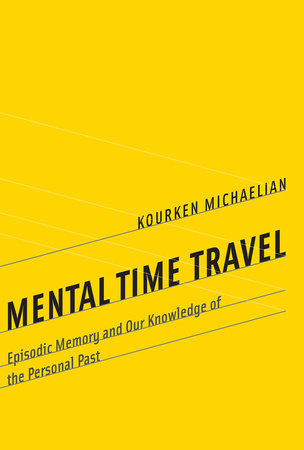
Mental Time Travel
Episodic memory and our knowledge of the personal past, part of life and mind: philosophical issues in biology and psychology.
- Psychology > Cognitive Psychology > Introduction to Cognitive Psychology
Additional formats
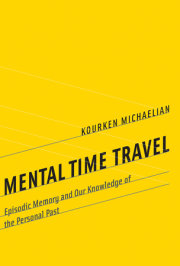
Other books in this series
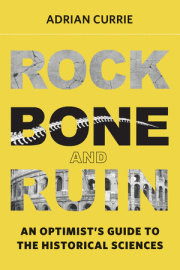
Related Articles
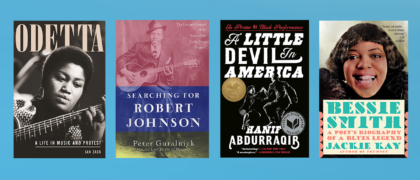
Books for Black Music Appreciation Month
In June, we celebrate Black Music Appreciation month and the influential Black musicians and artists who have brought entertainment to their communities and beyond, and inspired others to make their own art. Collection of titles for Black Music Appreciation Month
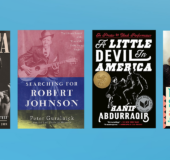
Books for LGBTQIA+ Pride Month
In June we celebrate Lesbian, Gay, Bisexual, Transgender, Queer, Intersex, and Asexual + (LGBTQIA+) Pride Month, which honors the 1969 Stonewall riots in Manhattan. Pride Month is a time to both celebrate the accomplishments of those in the LGBTQ+ community and recognize the ongoing struggles faced by many across the world who wish to live

New Psychology Titles from Penguin Random House
Browse these new and notable titles for use in your Psychology courses. To request complimentary exam copies for course-use consideration, click here.
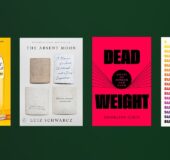
Get the latest news on all things Higher Education. Learn about our books, authors, teacher events, and more!
Friend us on Facebook!
Follow us on Twitter!
Subscribe on YouTube!
Our mission is to foster a universal passion for reading by partnering with authors to help create stories and communicate ideas that inform, entertain, and inspire.
Privacy Policy | Terms of Use
© 2024 Penguin Random House
About Higher Education
- Digital Solutions
- Conferences
- Submit a desk/exam request
- Contact your Higher Education Account Manager
- Browse & subscribe to our newsletters
Penguin Random House Education
- Common Reads
Penguin Random House
- penguinrandomhouse.com
- global.penguinrandomhouse.com
- Penguin Random House Speakers Bureau
From high-yield savings accounts to no-fee checking accounts, CNET helps you get the most out of your bank accounts.
Stranded by Mint? This Budgeting App Is a Good Replacement
If Mint's disappearance left you needing a new budgeting app, this one is worth checking out.
If You Deposit $2,000 Into This CD Right Now, You’d Earn About $100 in a Year
Fed meets today: watch out for interest rate hikes instead of cuts this year, one economist says, rocket money review june 2024, are gen z money trends giving you deja vu that's because they're boomer financial fads, tired of living paycheck to paycheck break the cycle with this trick, best of banking, best cd rates for june 2024, best 18-month cd rates for june 2024, best high-yield savings accounts for college students in 2024, grow your money faster with these high-yield savings accounts, best jumbo cd rates for june 2024, best savings accounts for june 2024, best checking accounts for june 2024, best online banks for may 2024, best bank account bonuses for june 2024, the best banks with reduced or no overdraft fees, best money market accounts for june 2024, banking advice, earn more than 5% apy with these savings accounts and cds.
Today’s top CDs and savings accounts will help boost your interest earnings.
6 Reasons Why You Should Own Multiple Savings Accounts
What is a cd ladder and how do you build one, alternatives to traditional savings accounts, 7 ways to earn higher interest on your money, how to open a bank account online, how savings interest works, how to open a certificate of deposit, latest stories, best savings rates today, may 31, 2024: maximize your savings with apys up to 5.55%, best cd rates today, may 31, 2024: now's the time to take advantage of high apys, get up to $500 before your next paycheck with chime mypay, my cd is about to mature. what should i do with the money, i used chatgpt to build my budget. here's what it missed, best savings rates today -- now's the time to earn up to 5.55% apy, may 30, 2024, best cd rates today -- act now to score an apy up to 5.35%, may 30, 2024, 93% of americans are worried about inflation. how rising prices are changing how we spend and save, best savings rates today -- don't wait to snag these high apys, may 29, 2024, best cd rates today -- don't sleep on apys up to 5.35%, may 29, 2024.
- Even more »
Account Options

- Try the new Google Books
- Advanced Book Search
- Barnes&Noble.com
- Books-A-Million
- Find in a library
- All sellers »
Other editions - View all
Common terms and phrases, about the author (2016), bibliographic information.

COMMENTS
by Kourken Michaelian. Paperback. $45.00. Paperback. ISBN: 9780262551151. Pub date: February 6, 2024. Publisher: The MIT Press. 312 pp., 6 x 9 in, 10 line drawings. MIT Press Bookstore Penguin Random House Amazon Barnes and Noble Bookshop.org Indiebound Indigo Books a Million.
One of the most well-known books about time travel for families - made even more popular by Oprah and Mindy Kaling, A Wrinkle In Time, is the first book in The Time Quintet. Although a time travel book series for elementary and middle-grade students - and also a 1963 Newbery Medal winner - adults will love the lessons and whimsical sci-fi ...
In this book, Kourken Michaelian builds on research in the psychology of memory to develop an innovative philosophical account of the nature of remembering and memory knowledge. ... Michaelian situates episodic memory as a form of mental time travel and outlines a naturalistic framework for understanding it. Drawing on research in constructive ...
Mental time travel. In psychology, mental time travel is the capacity to mentally reconstruct personal events from the past ( episodic memory) as well as to imagine possible scenarios in the future (episodic foresight /episodic future thinking). The term was coined by Thomas Suddendorf and Michael Corballis, [1] building on Endel Tulving 's ...
EFT is often described as a kind of "mental time travel" because your brain is working to help you see and feel the future as clearly and vividly as if you were already there. EFT isn't an escape from reality. It's a way of playing with reality, to discover risks and opportunities you might not have considered.
One Last Stop. Casey McQuiston. One of the most anticipated time travel books of 2021 comes from the author of Red, White & Royal Blue. Cynical August doesn't believe life will ever change until she develops a crush on a girl from her subway commute. Jane is perfect and the highlight of August's every day.
Octavia E. Butler - Feb 01, 2004 (first published in 1979) Goodreads Rating. 4.3 (208k) Historical Fiction Fiction Science Fiction Fantasy Time Travel. Travel through time and experience the heartbreaking journey of Dana, a black woman who finds herself transported from 1976 to 1815 and assumed to be a slave.
The disillusionment is that what the author means is not mental time travel per se, but rather a kind of non-literal time travel involving memories of the past and future within the moment one is living in. This is a compromise that some readers will not appreciate, and making matters worse, the author seems to gloss over the idea that he is ...
As it turns out, episodic memory — a term coined in the early 1970s by Canadian neuroscientist Endel Tulving, author of the seminal book Elements of Episodic Memory — is central to our capacity for mental time travel and, according to many scientists, fairly unique to humans. Unlike other facets of memory, such as the acquisition of new ...
Here And Now And Then by Mike Chen. Another novel that delves into the complexities of time travel and human relationships is Here and Now and Then by Mike Chen. This book follows Kin Stewart, a time-traveling agent from the year 2142, who becomes stuck in 1996 after a mission goes wrong.
In this book, Kourken Michaelian builds on research in the psychology of memory to develop an innovative philosophical account of the nature of remembering and memory knowledge. ... Michaelian situates episodic memory as a form of mental time travel and outlines a naturalistic framework for understanding it. Drawing on research in constructive ...
You mentioned the time travel book fantasy of meeting ourselves a few moments ago. I think that brings us to The Man Who Folded Himself by David Gerrold…. I think it does! David Gerrold is probably most well-known for writing the Star Trek episode "The Trouble with Tribbles," which is a classic, incredibly silly, episode from the original Star Trek, where suddenly a bunch of tiny, fluffy ...
Mental Time Travel is a comprehensive look at the metaphysics, epistemology, and evolution of episodic memory that will be of interest to philosophers and psychologists alike. Drawing on current research in psychology, a new philosophical account of remembering as imagining the past. In this book, Kourken Michaelian builds on...
Mental time travel research has given rise to an ongoing debate between causal and simulation theories of memory (see Constructive Memory), which has, in turn, triggered a debate between continuist and discontinuist views of the relationship between remembering experienced past events and imagining possible future events (see Imagination).This section describes the concept of mental time ...
The Future of Another Timeline by Annalee Newitz. In the world of Another Timeline, time travel has been around since forever in the form of a geologic phenomena known as the "Machines.". Tess belongs to a group called the Daughters of Harriett, determined to make the future better for women by editing the timeline at key moments in history.
Drawing on current research on mental time travel, this book proposes an integrated set of answers to these questions, arguing that remembering is a matter of simulating past episodes, that we can identify metacognitive mechanisms enabling episodic simulation to meet standards of reliability sufficient for knowledge, and that the subjective ...
Mental Time Travel is a comprehensive look at the metaphysics, epistemology, and evolution of episodic memory that will be of interest to philosophers and psychologists alike. ― Philosophical Review --This text refers to an alternate kindle_edition edition.
In this book, Kourken Michaelian builds on research in the psychology of memory to develop an innovative philosophical account of the nature of remembering and memory knowledge. ... and their evolution makes a significant step in that direction.Michaelian situates episodic memory as a form of mental time travel and outlines a naturalistic ...
The idea that episodic memory is a form of mental time travel has had an enormous impact on research in psychology and is becoming increasingly influential in philosophy. The idea, however, is relatively recent. When Tulving ( 1972) first introduced the term "episodic memory", he defined it essentially as a specialized store devoted to ...
Intervention Overview. Mental time travel involves both positive reminiscence about past events, as well as positive imagination about future events. Just as with the HEAL process, practicing mental time travel motivates students to focus on and absorb the positive experiences in their lives. Encourage students to share their excitement about ...
In this book, Kourken Michaelian builds on research in the psychology of memory to develop an innovative philosophical account of the nature of remembering and memory knowledge. ... Michaelian situates episodic memory as a form of mental time travel and outlines a naturalistic framework for understanding it. Drawing on research in constructive ...
Best Savings Rates Today -- Now's the Time to Earn Up to 5.55% APY, May 30, 2024 2 days Best CD Rates Today -- Act Now to Score an APY up to 5.35%, May 30, 2024
In this book, Kourken Michaelian builds on research in the psychology of memory to develop an innovative philosophical account of the nature of remembering and memory knowledge. ... and their evolution makes a significant step in that direction.Michaelian situates episodic memory as a form of mental time travel and outlines a naturalistic ...
PPPS - My Mental Time Travel System uses the 15 Truths to help you attract the Big 3 (wealth, health, romance) by changing your past and creating your future - in under ten minutes. There is nothing else like this anywhere on the planet. I fully stand behind my program. I guarantee it.